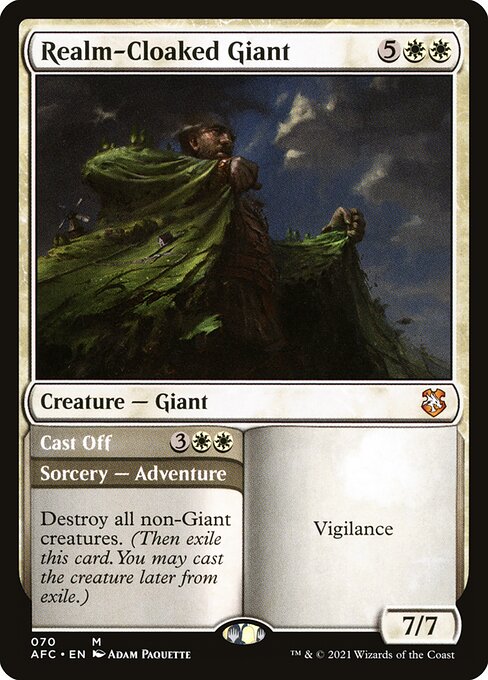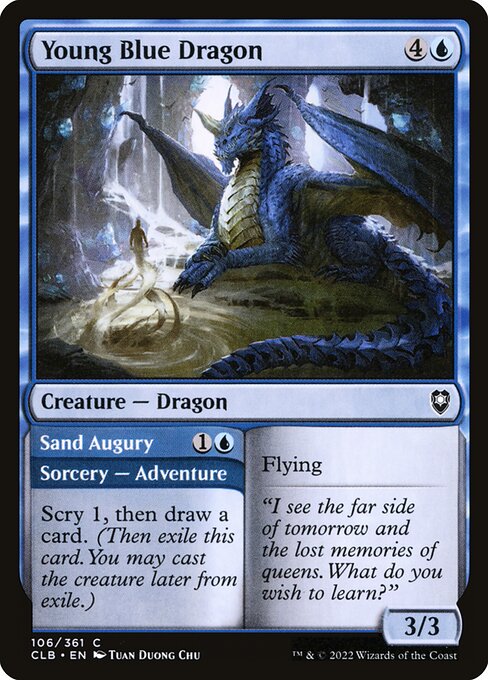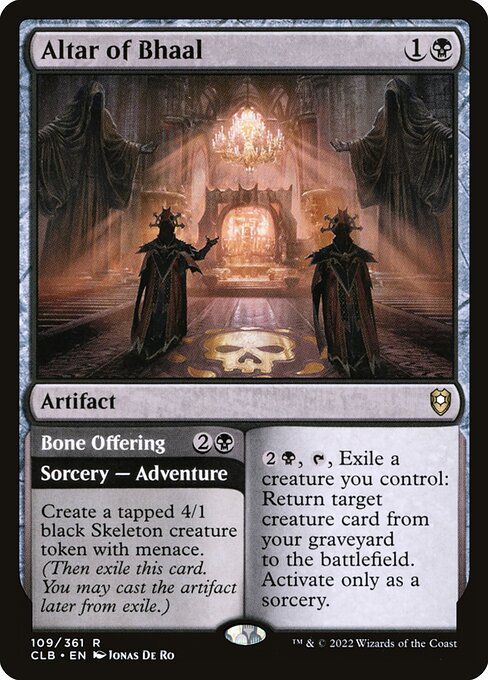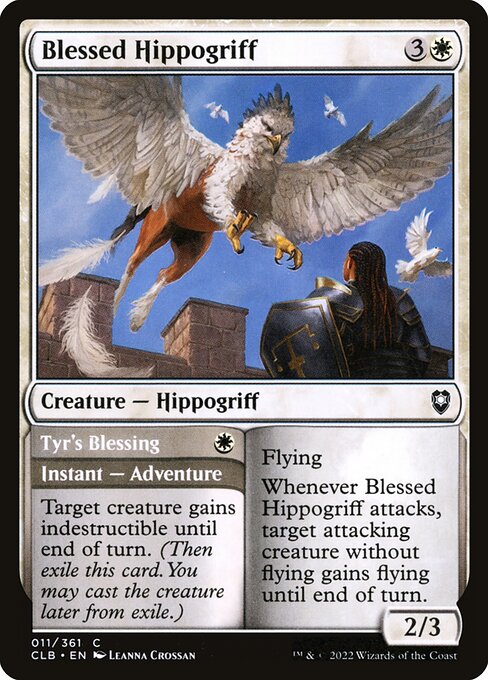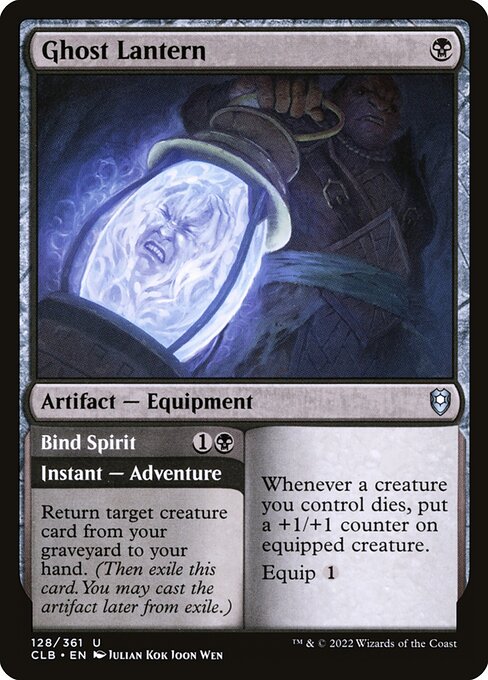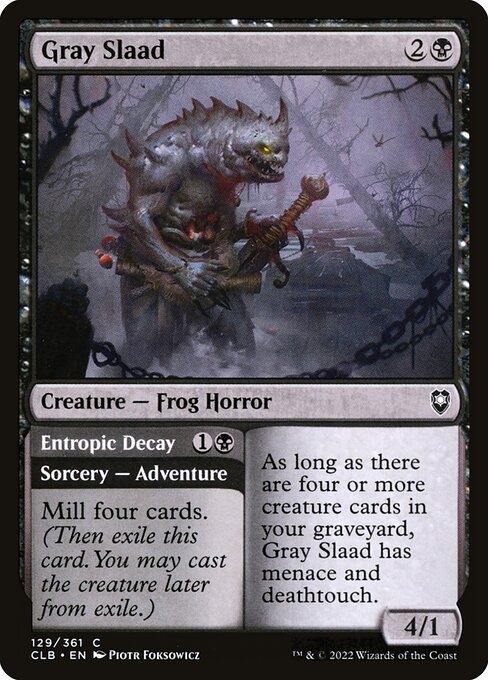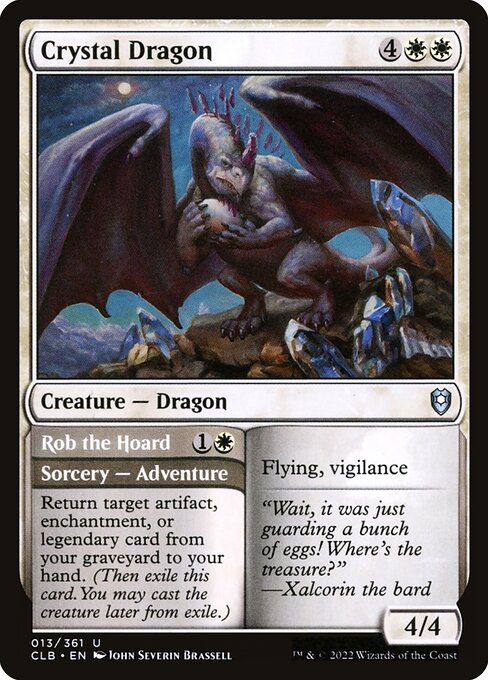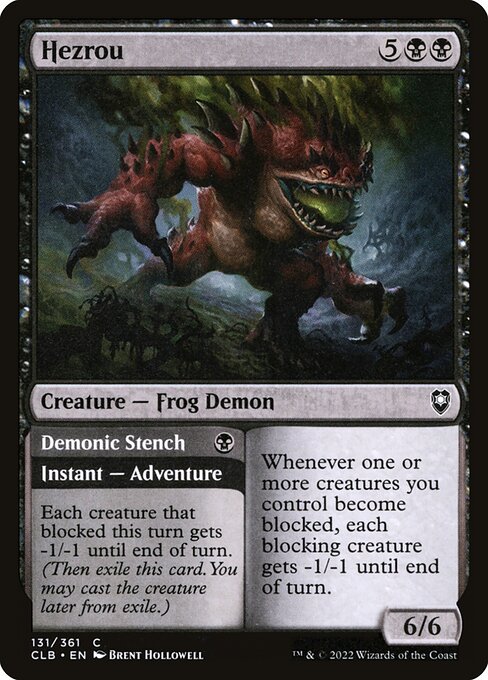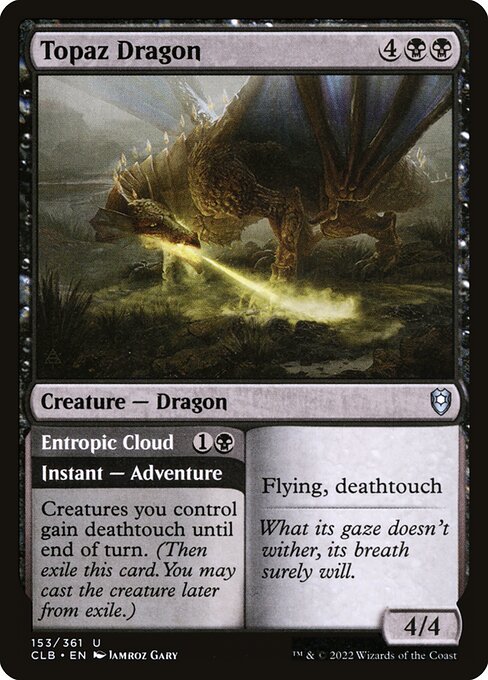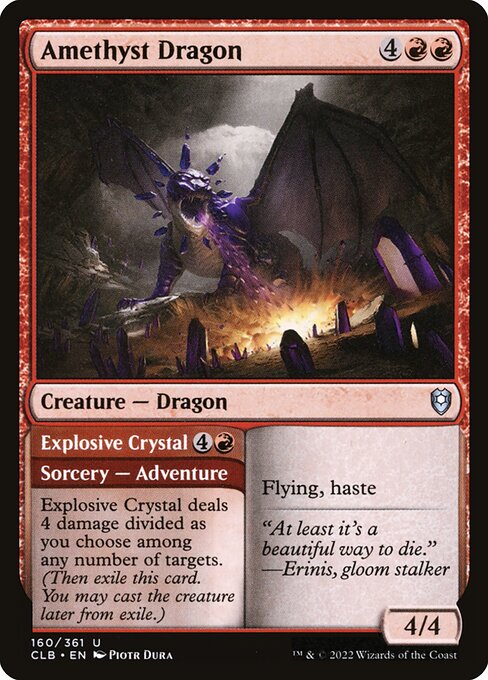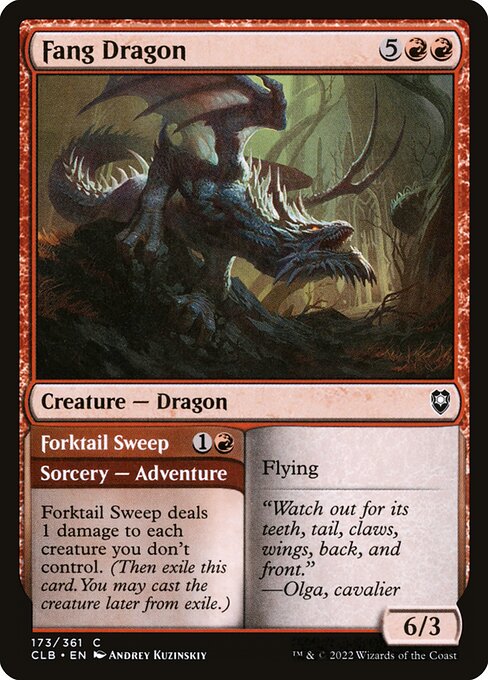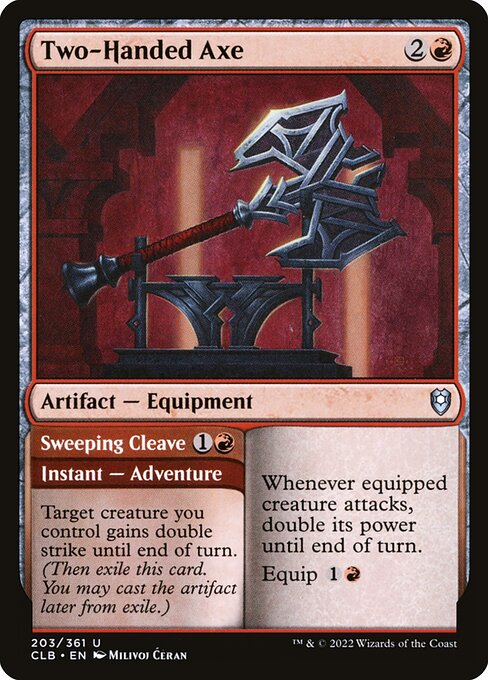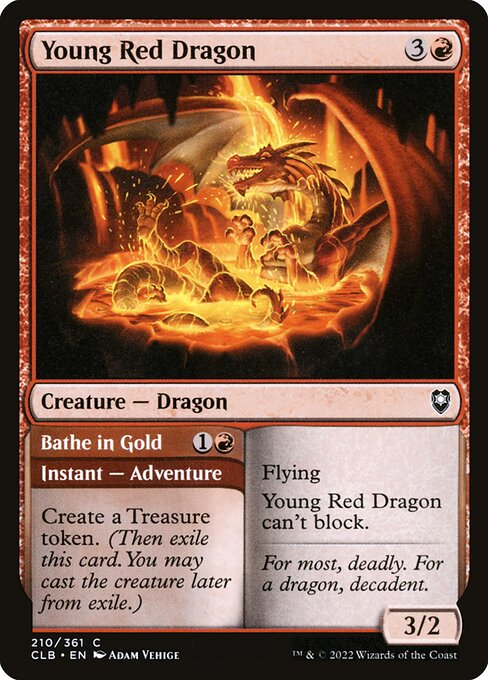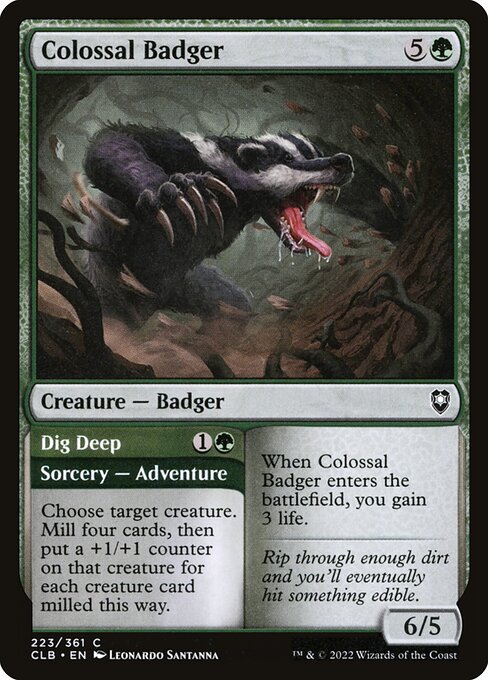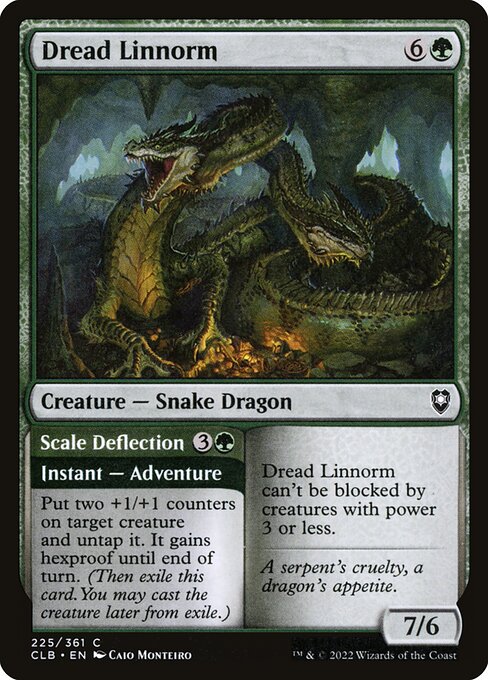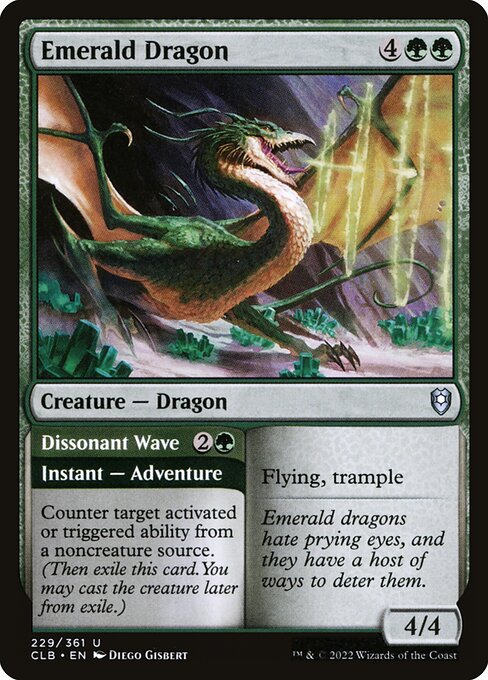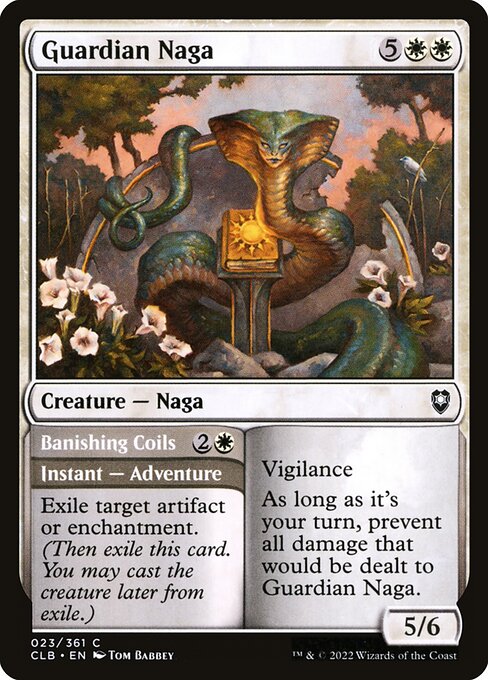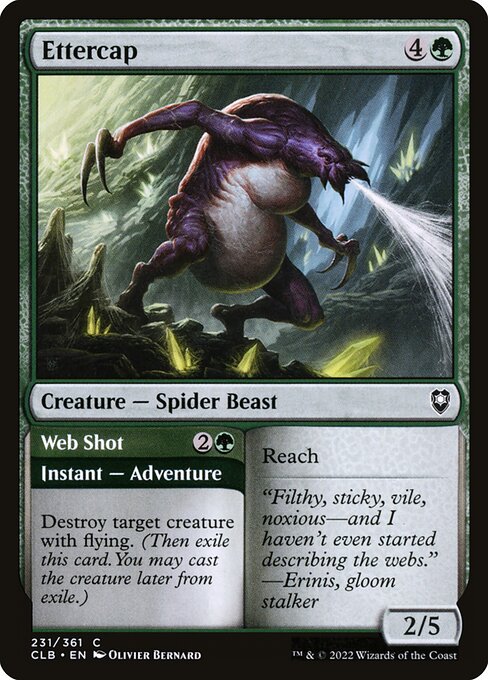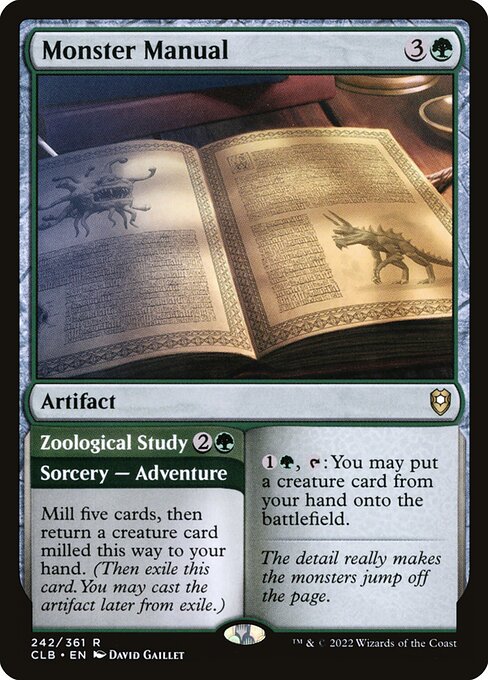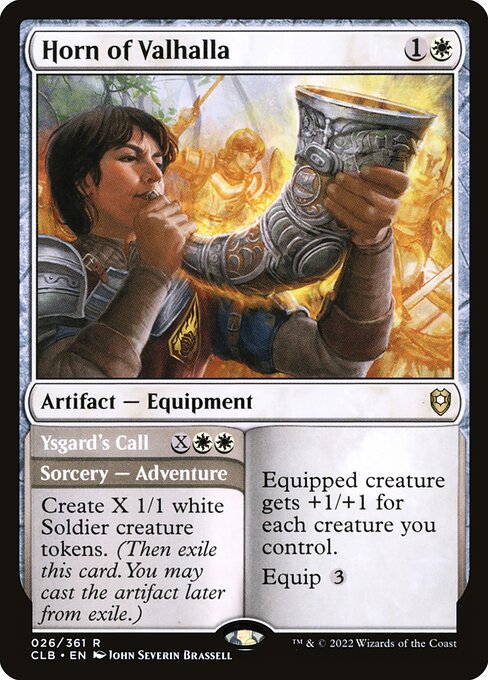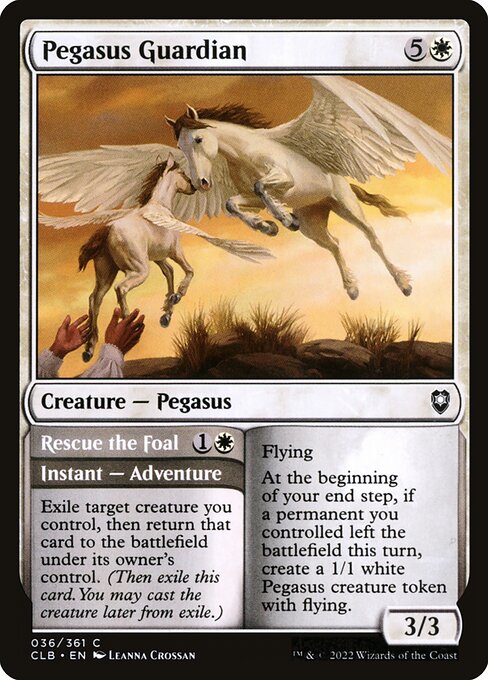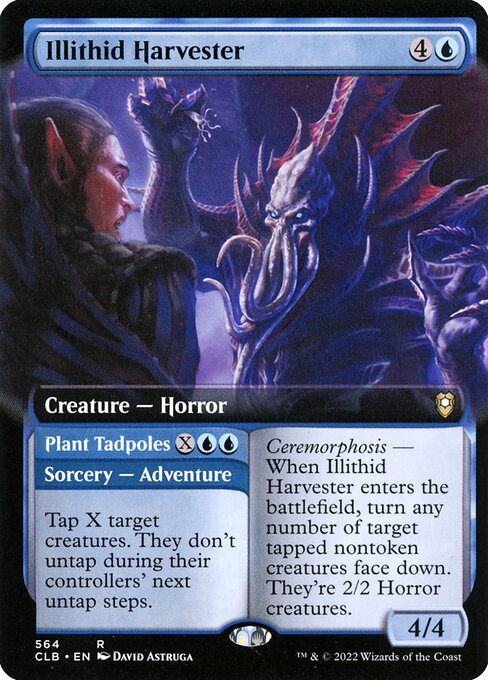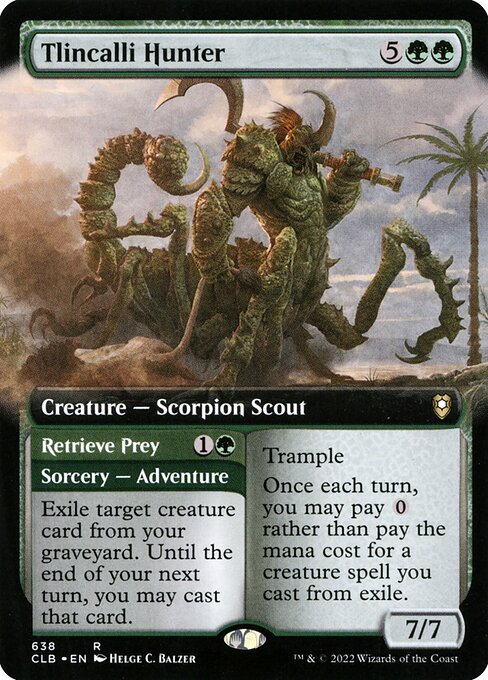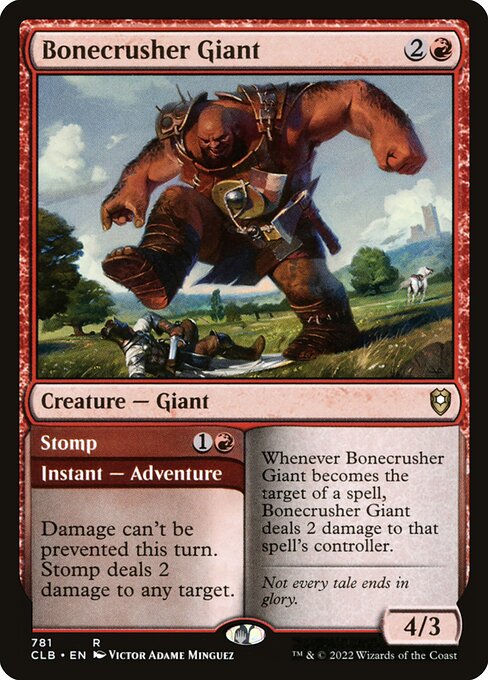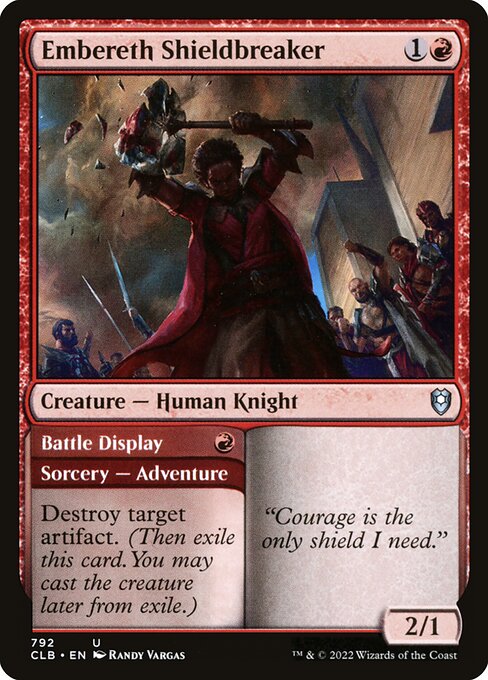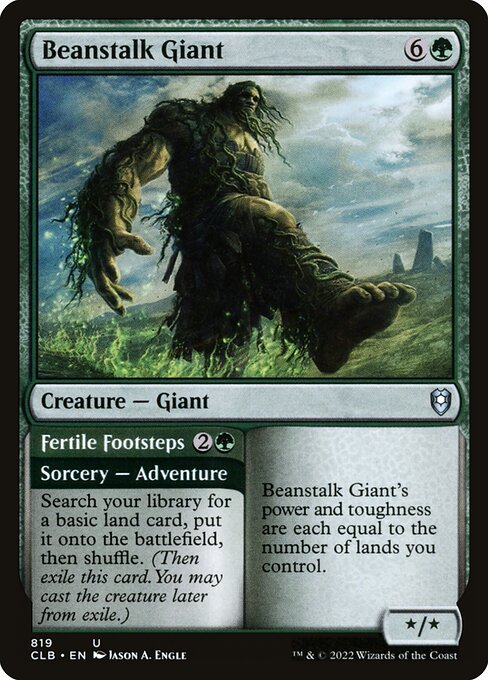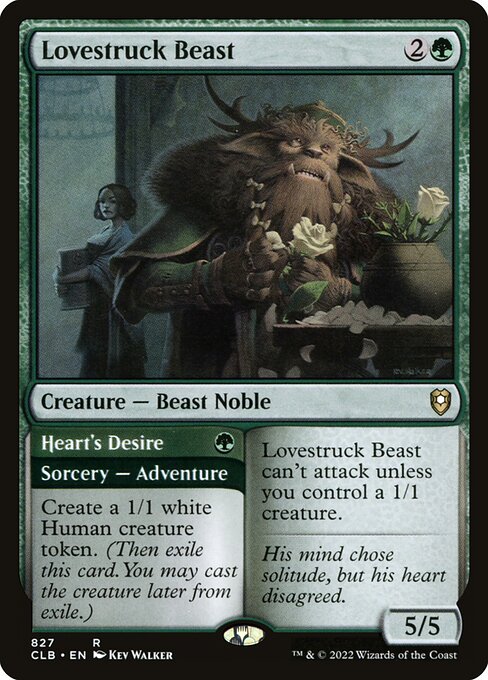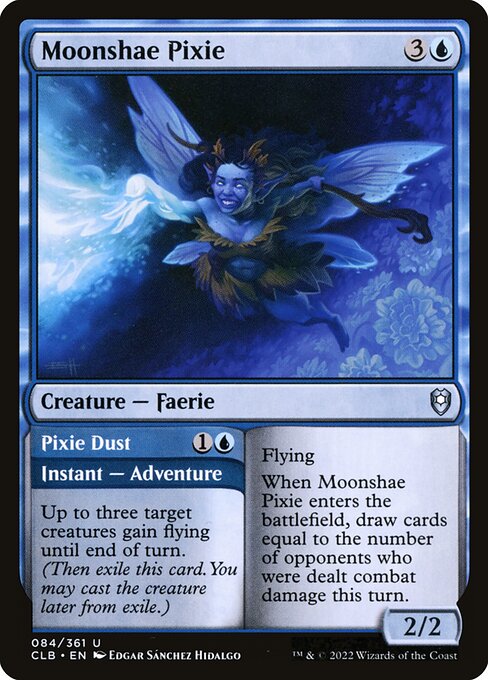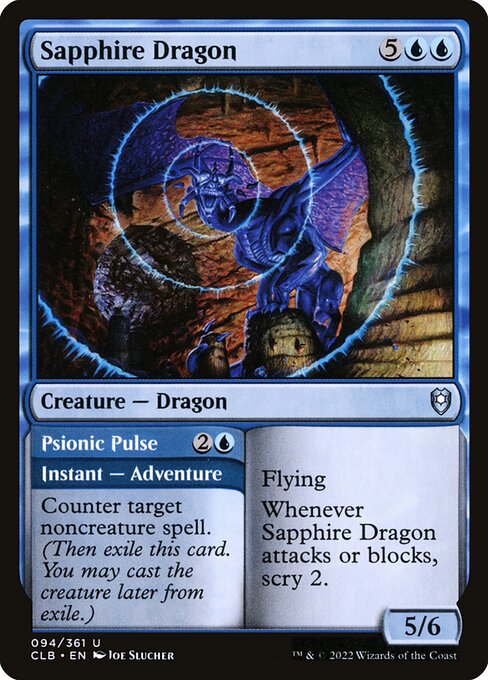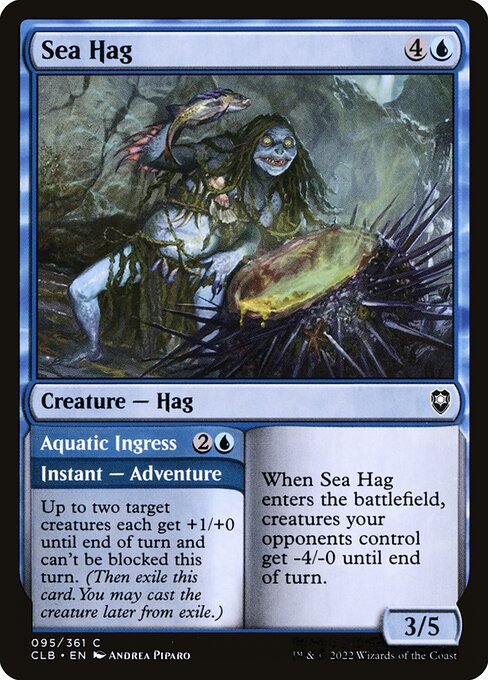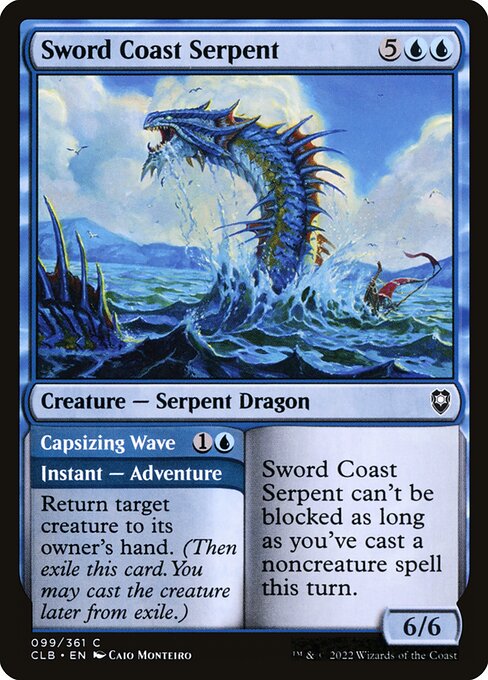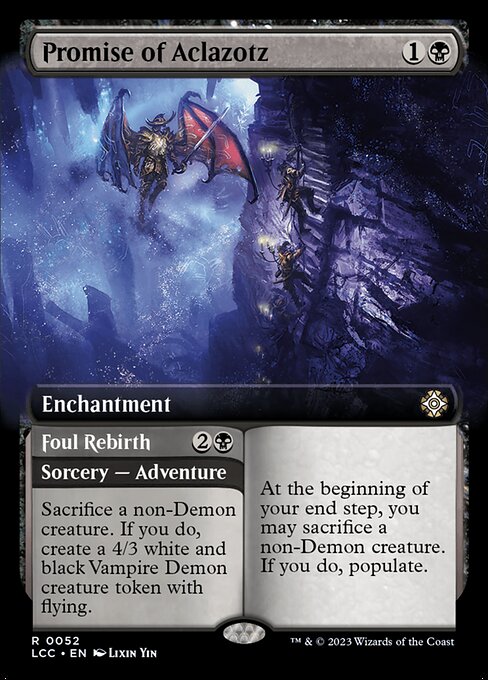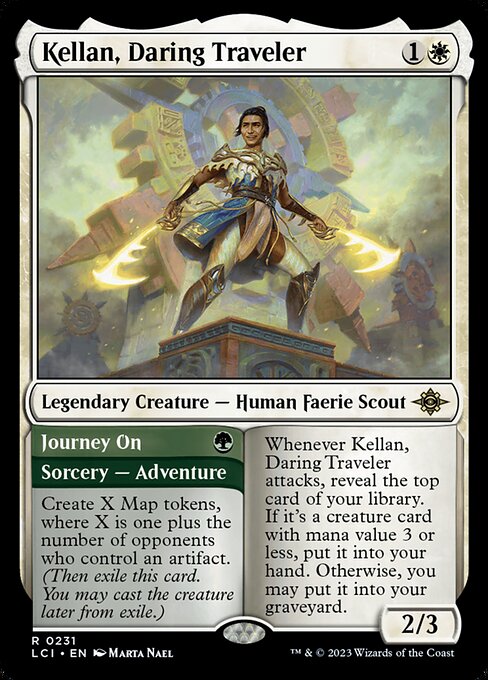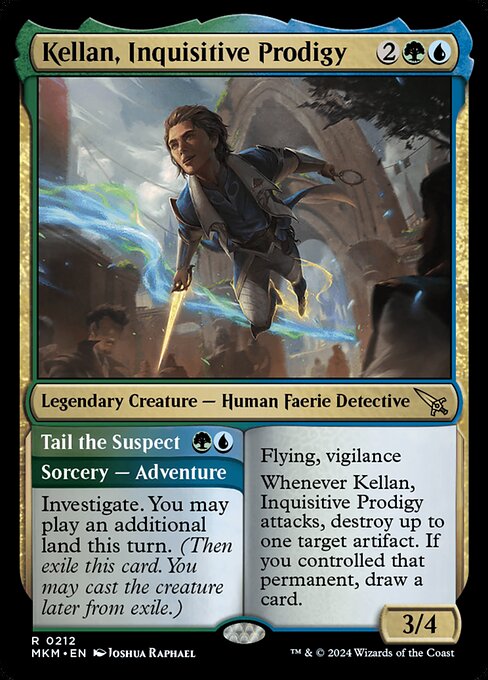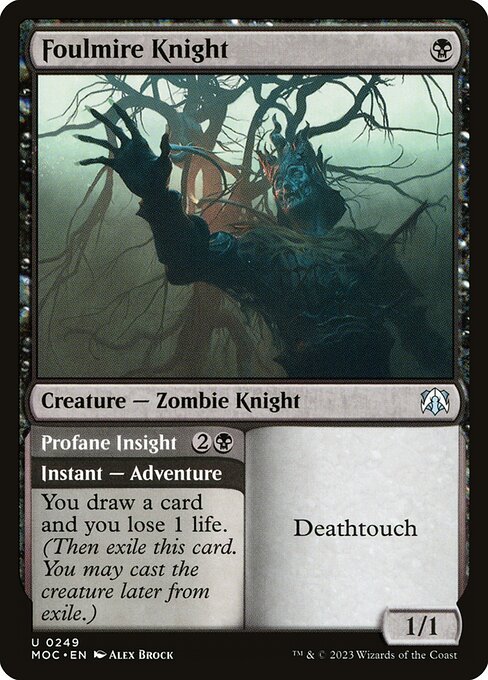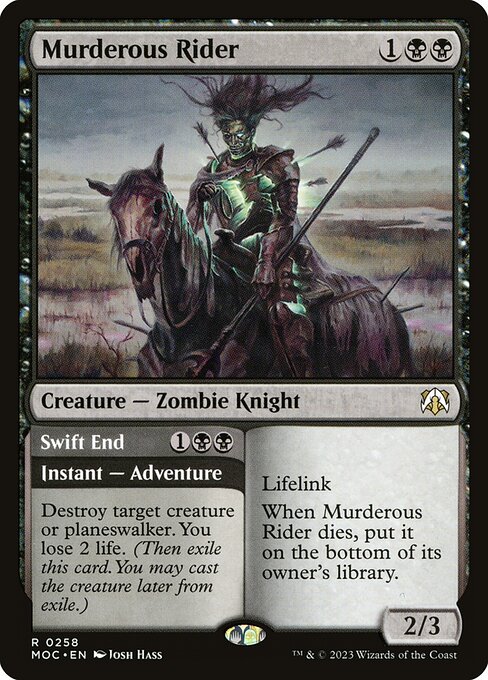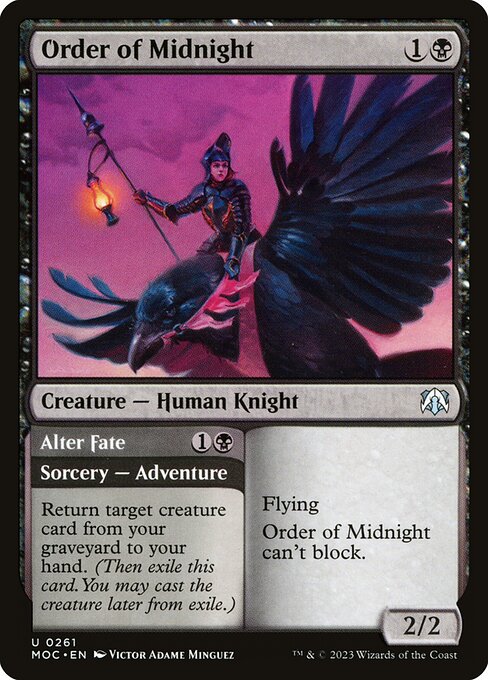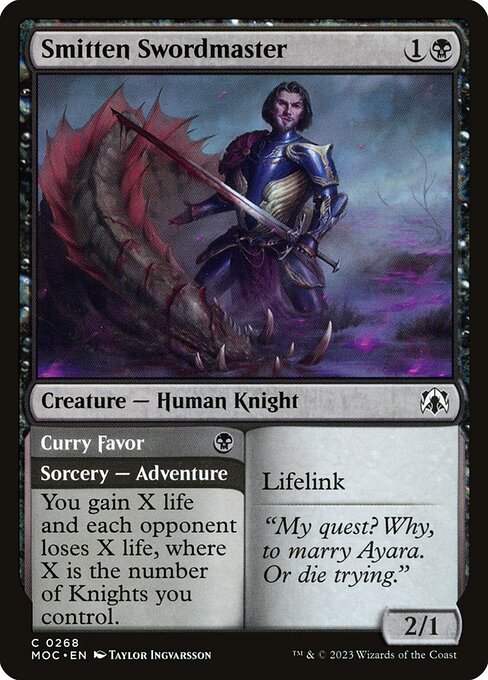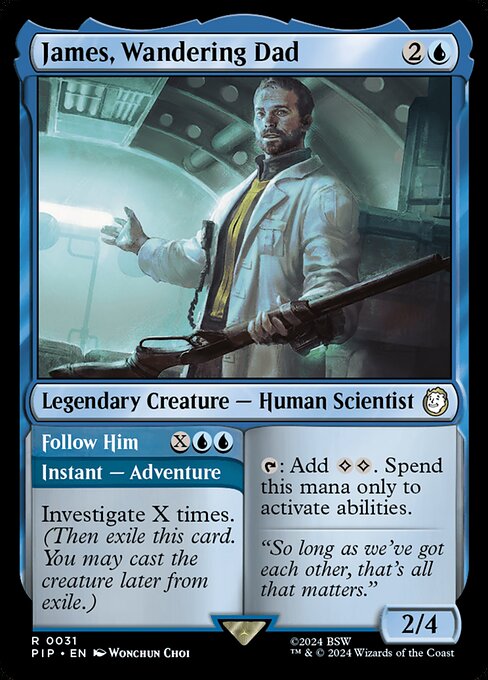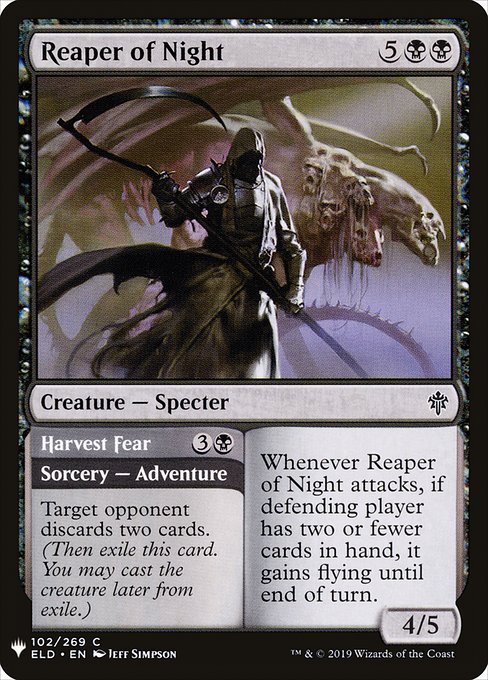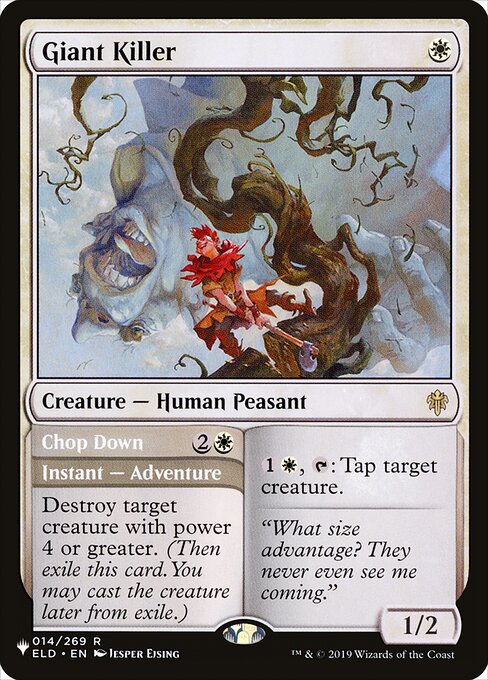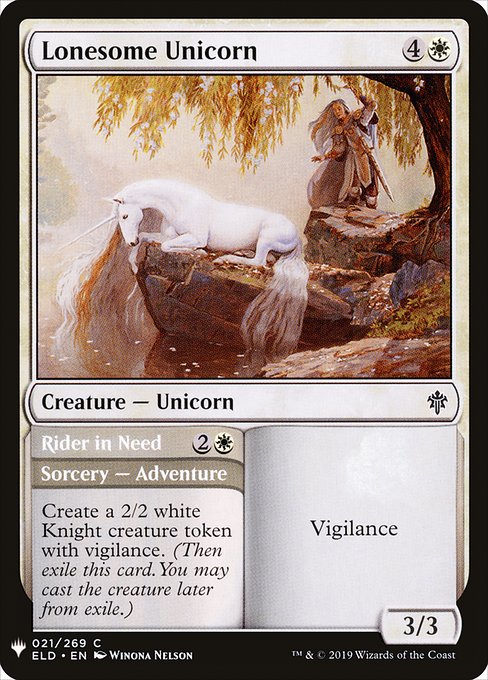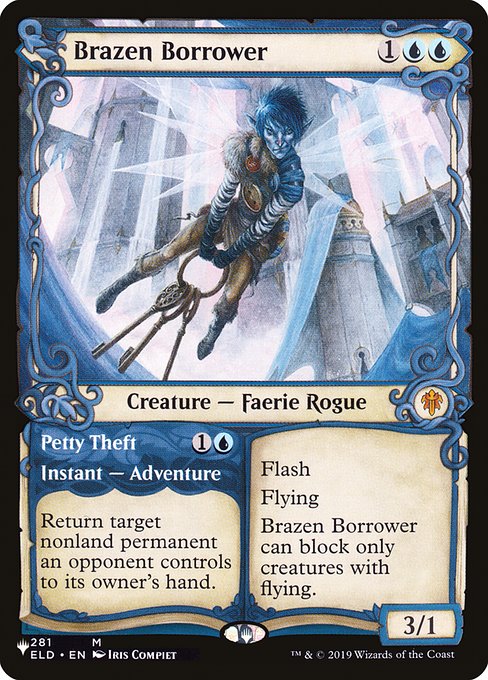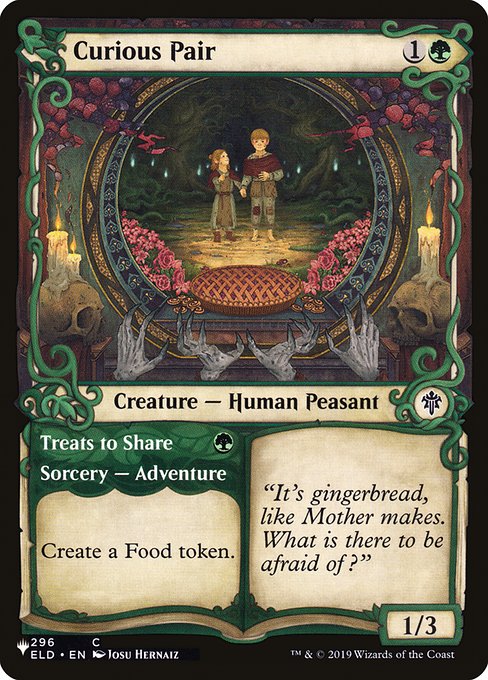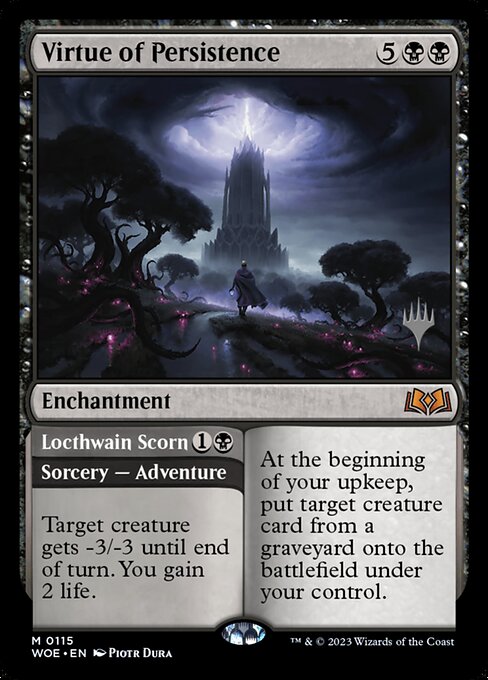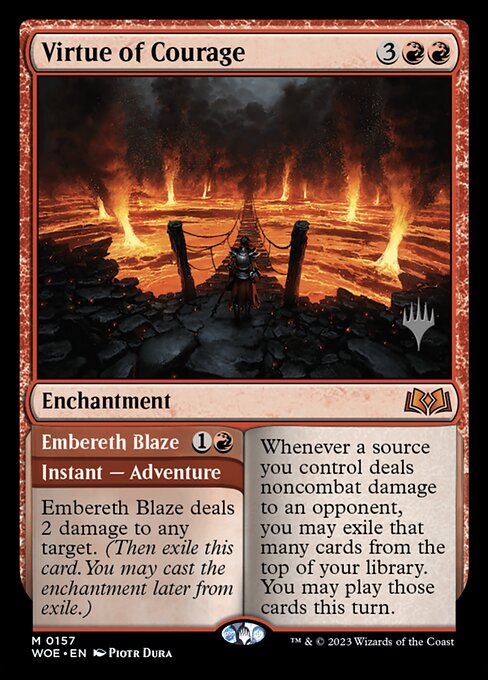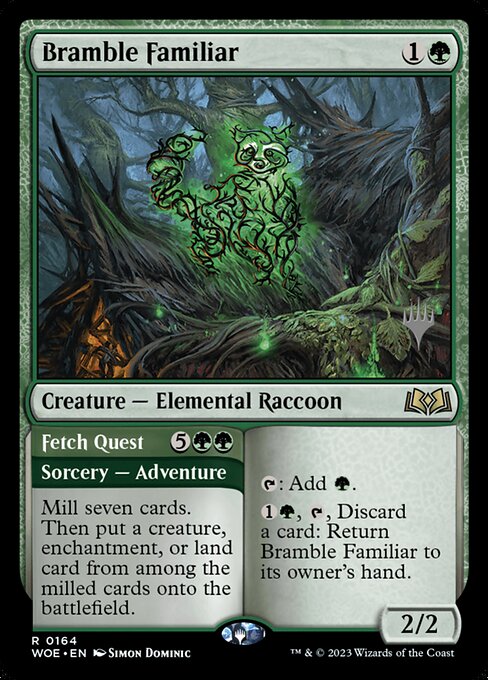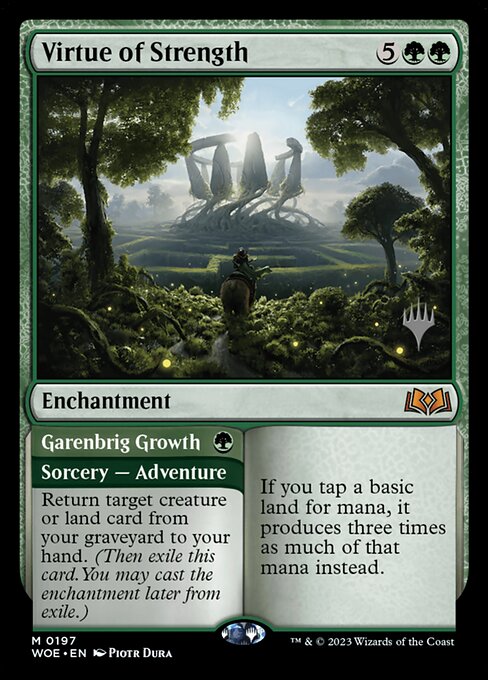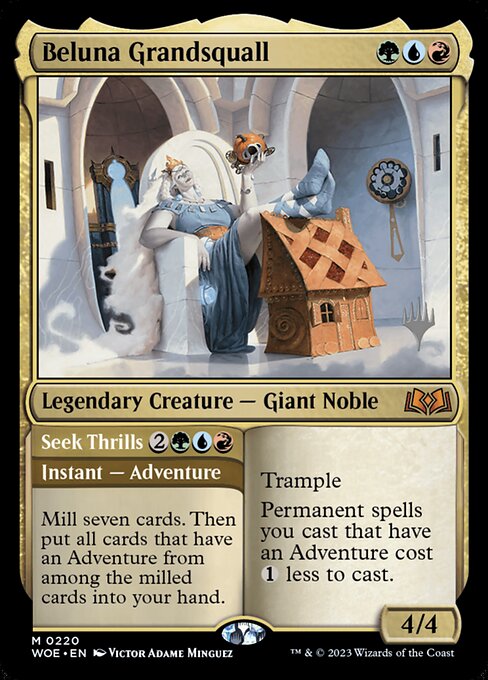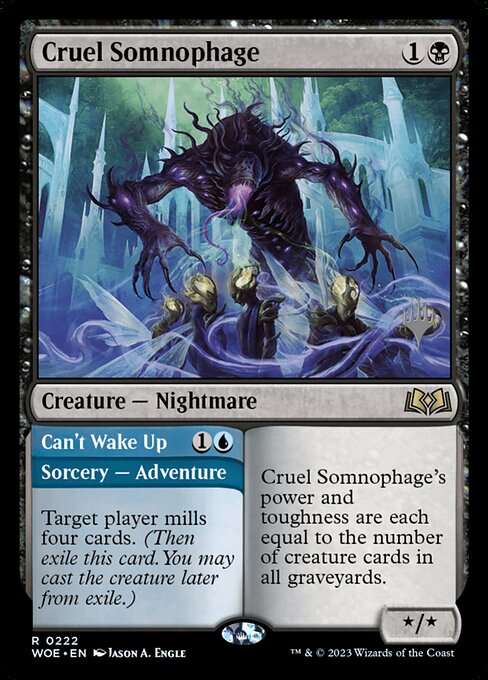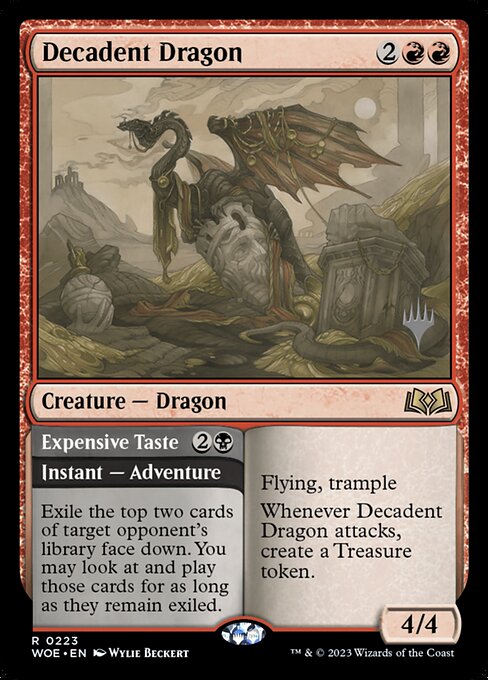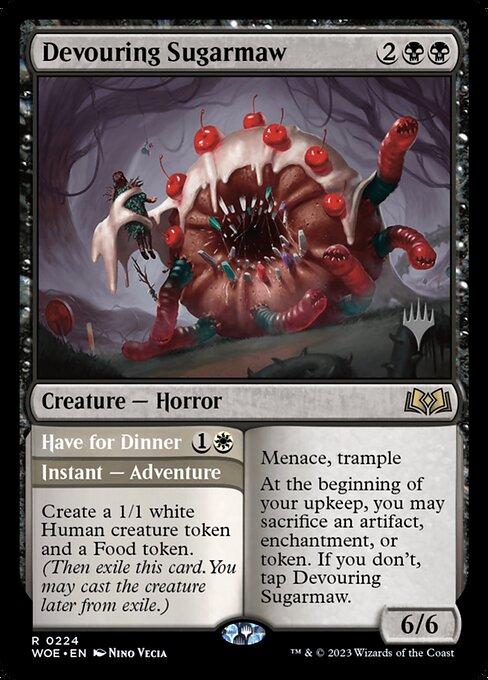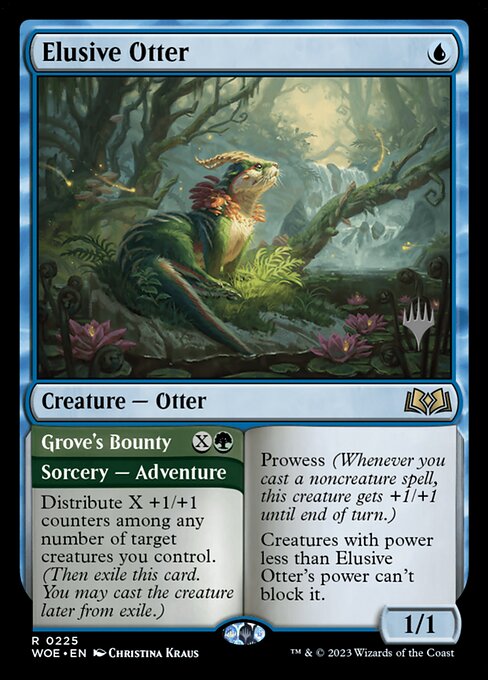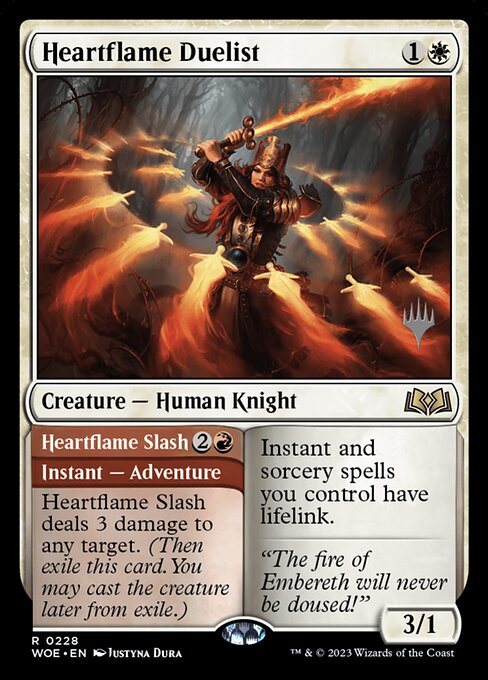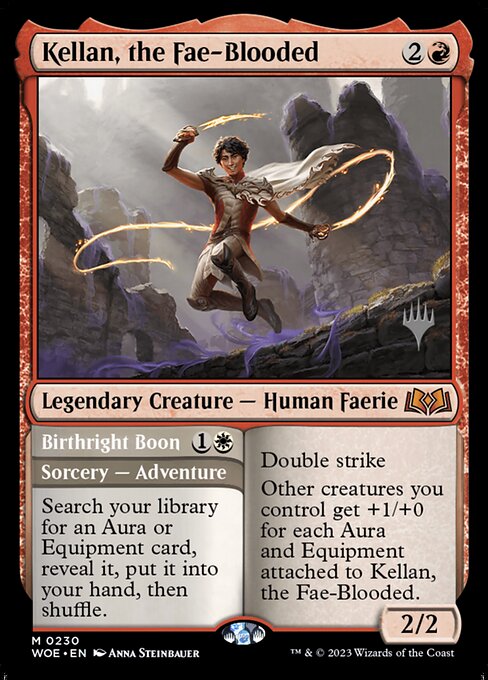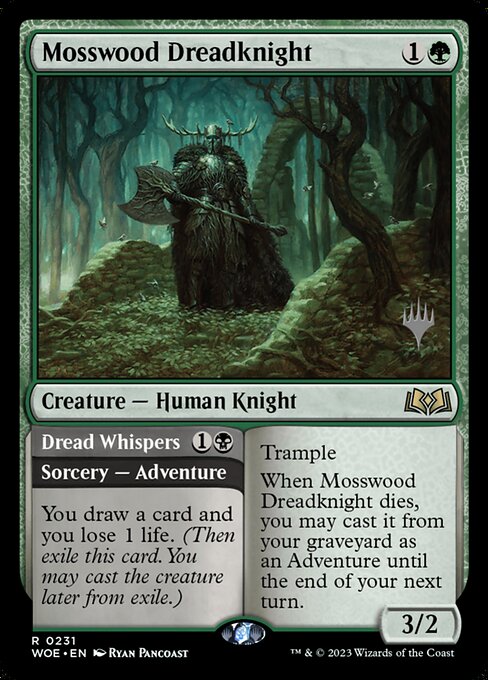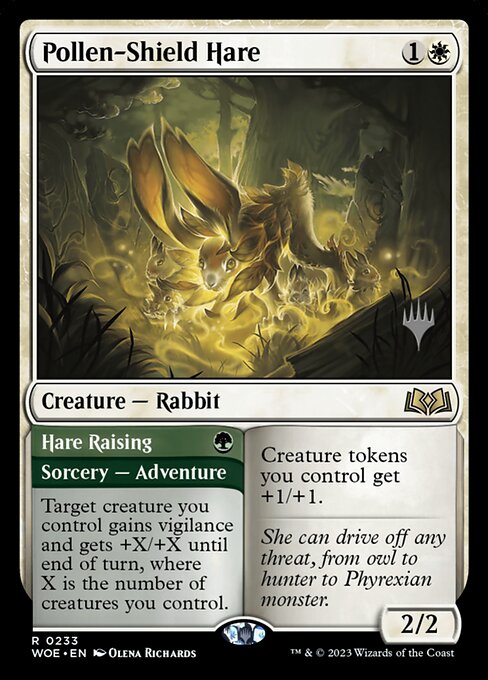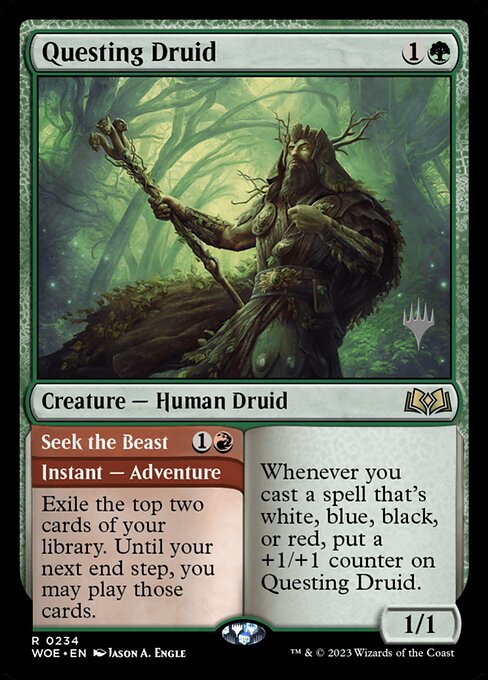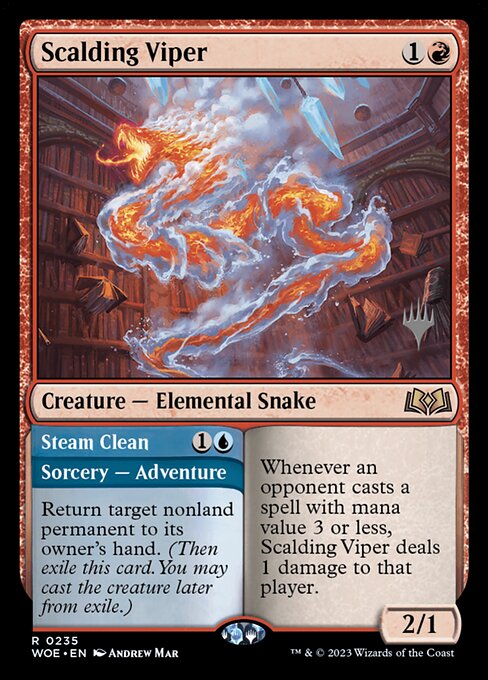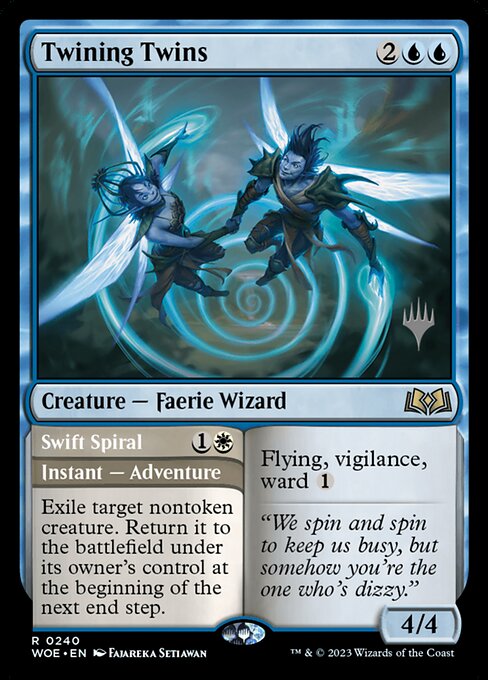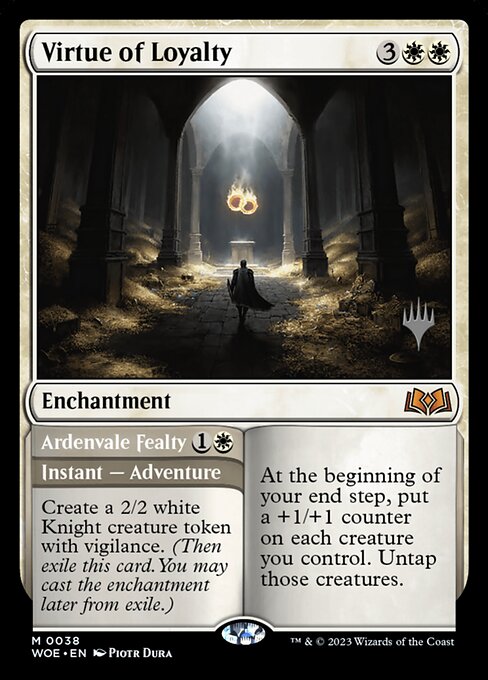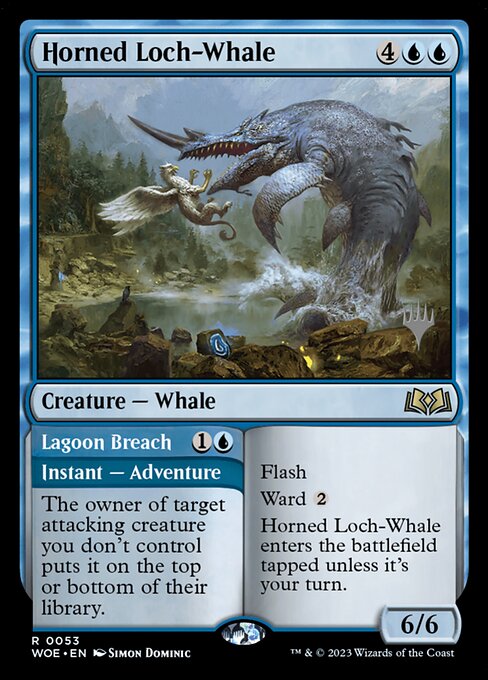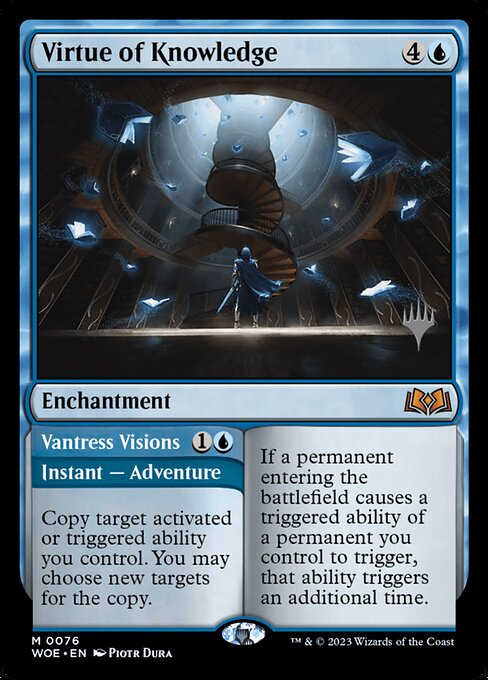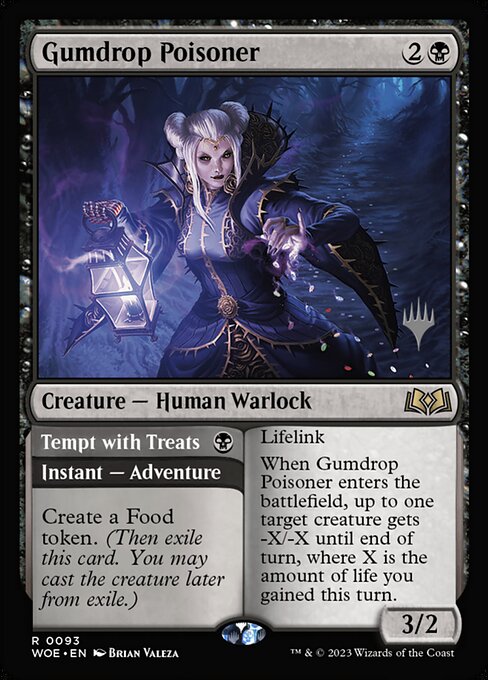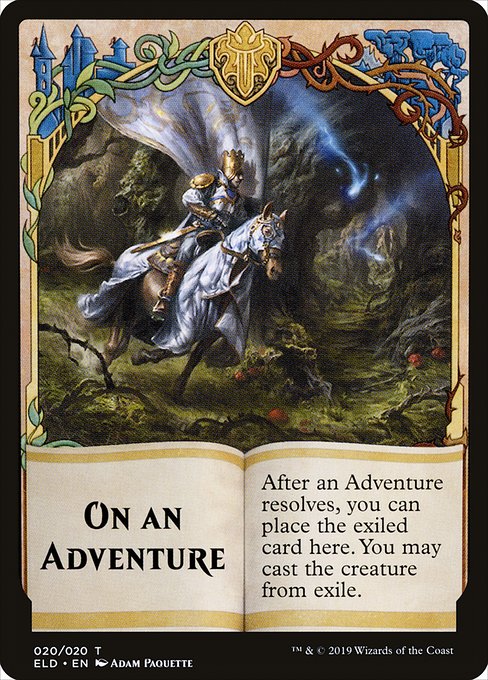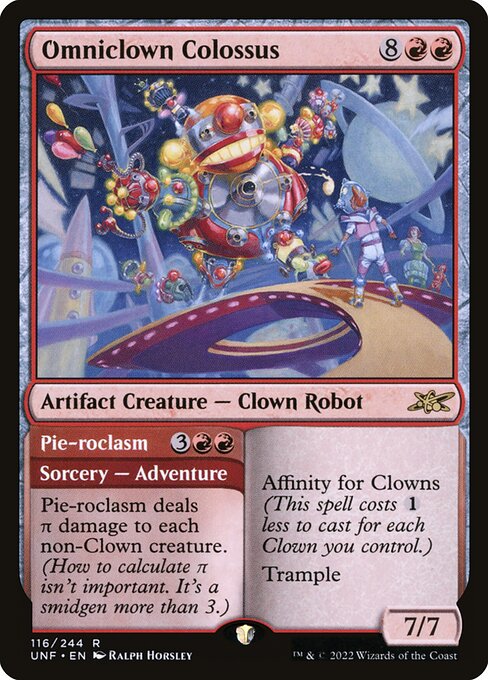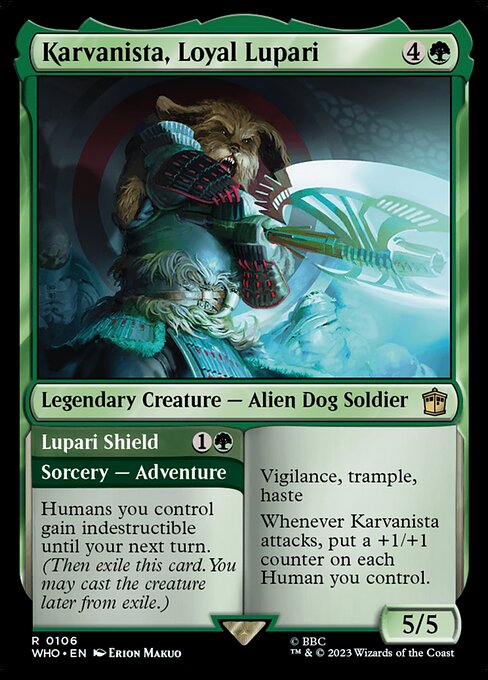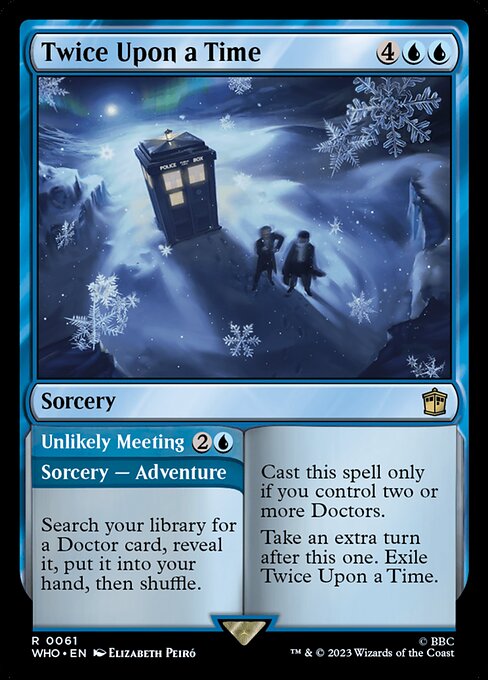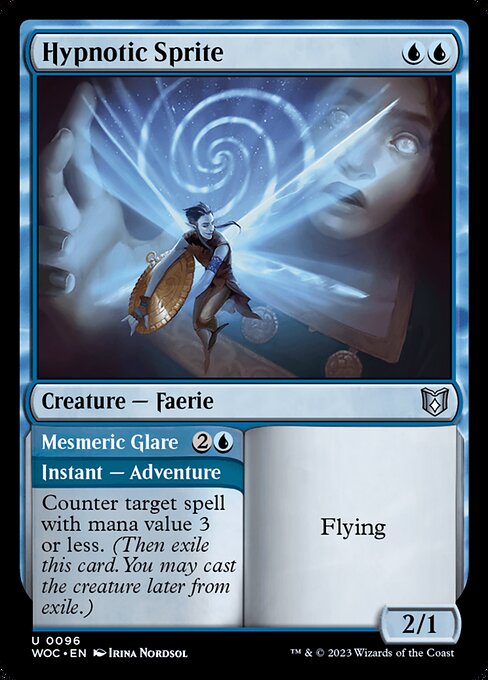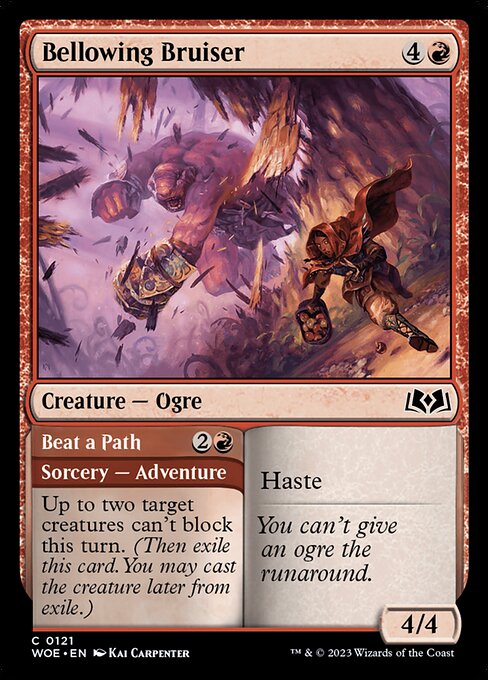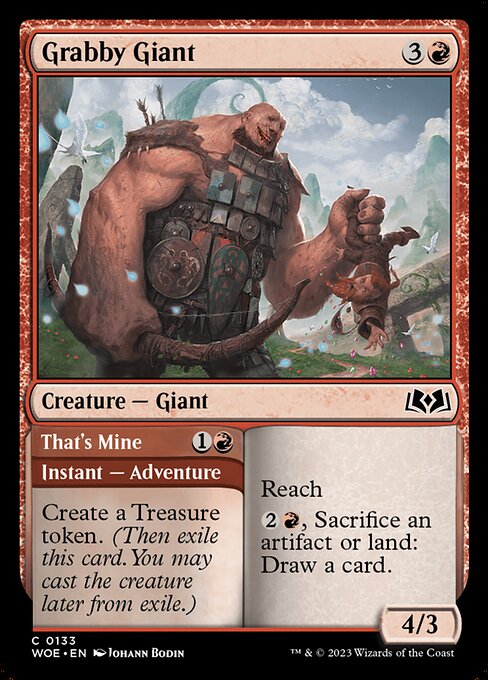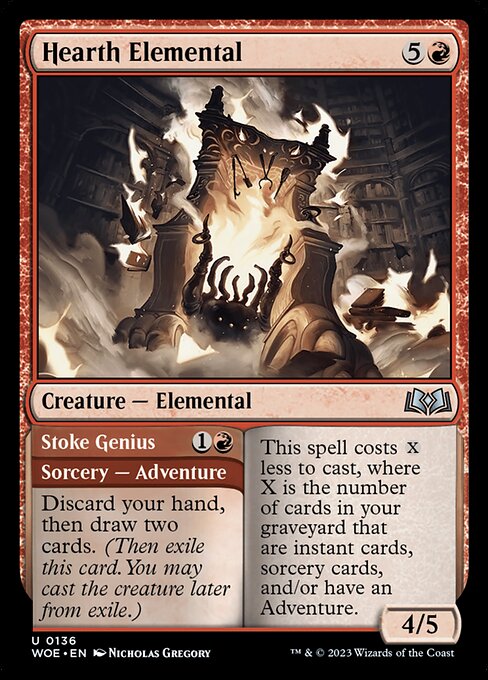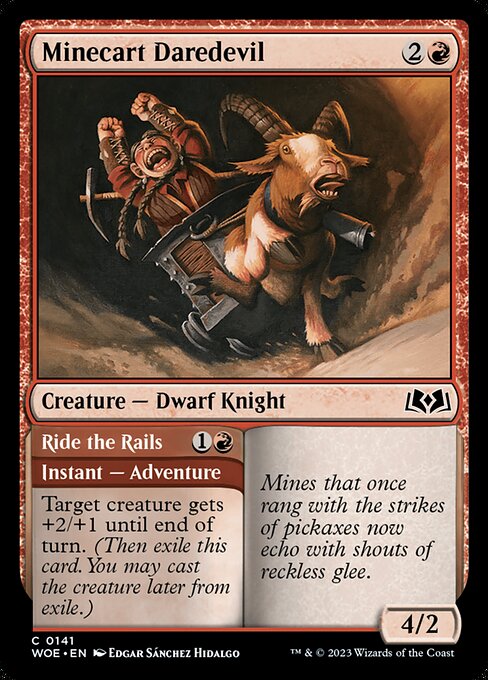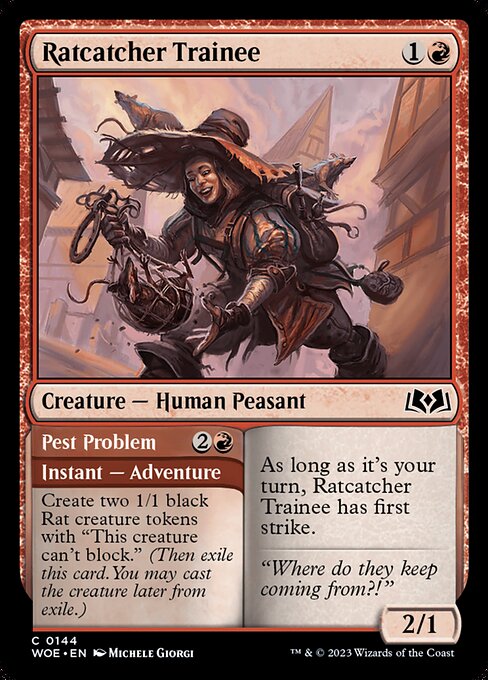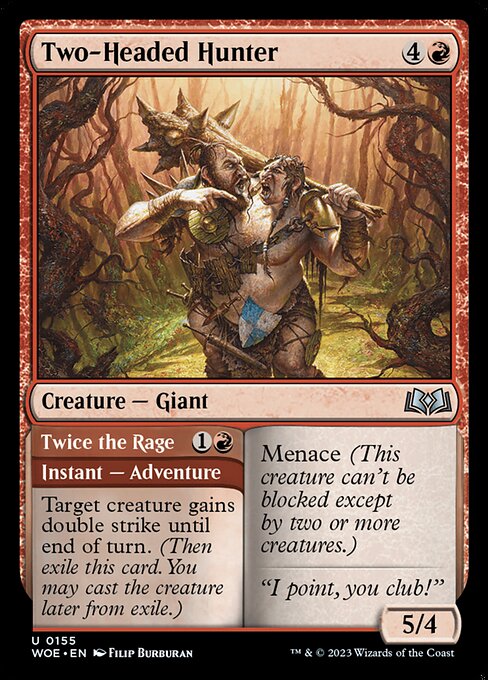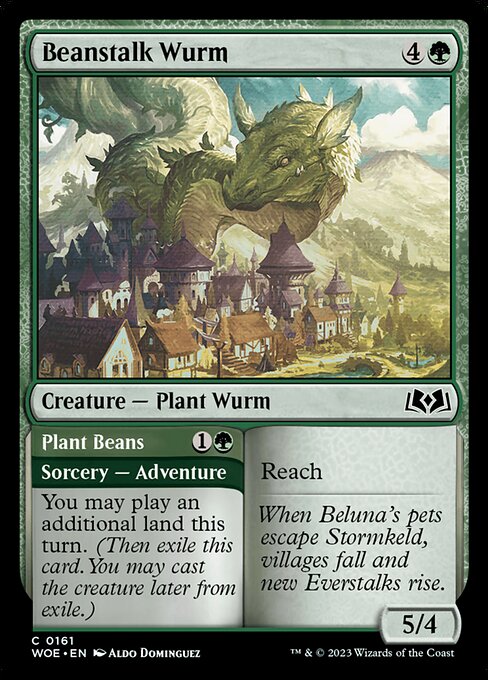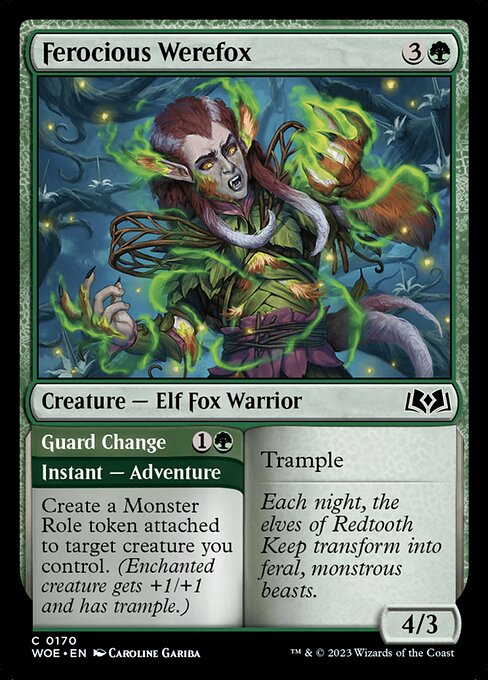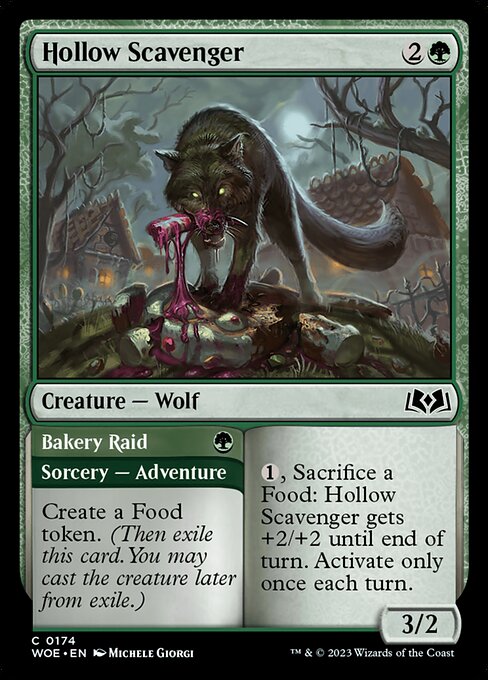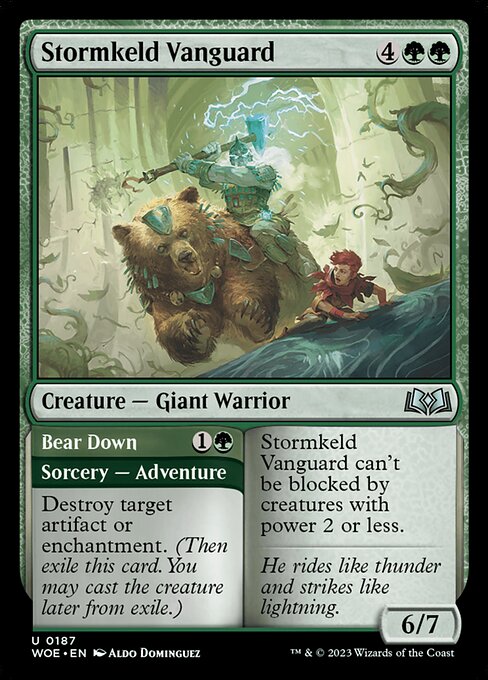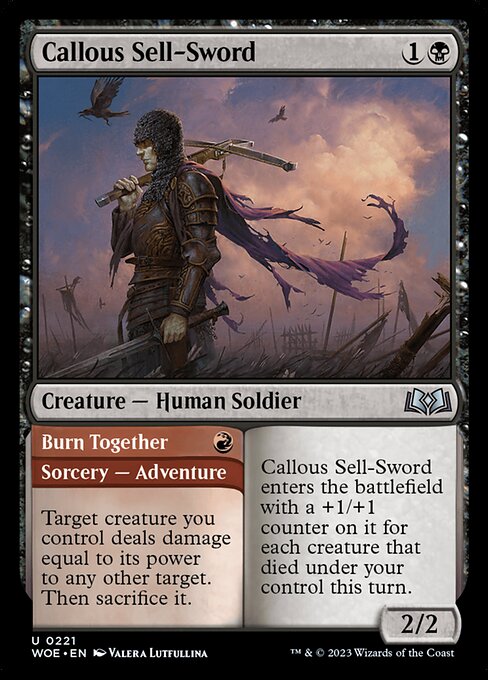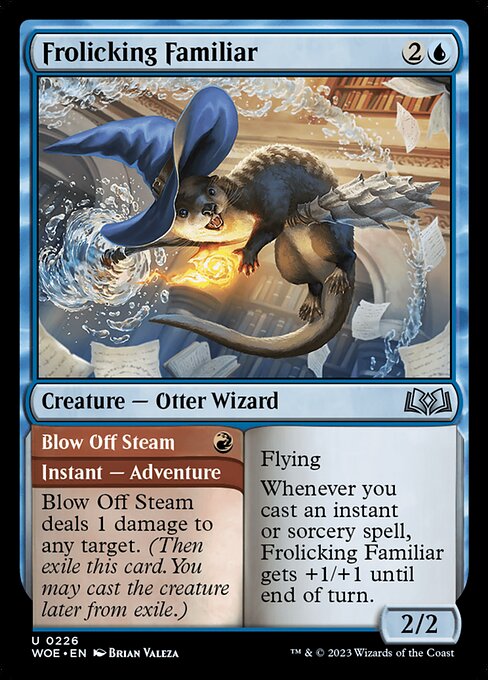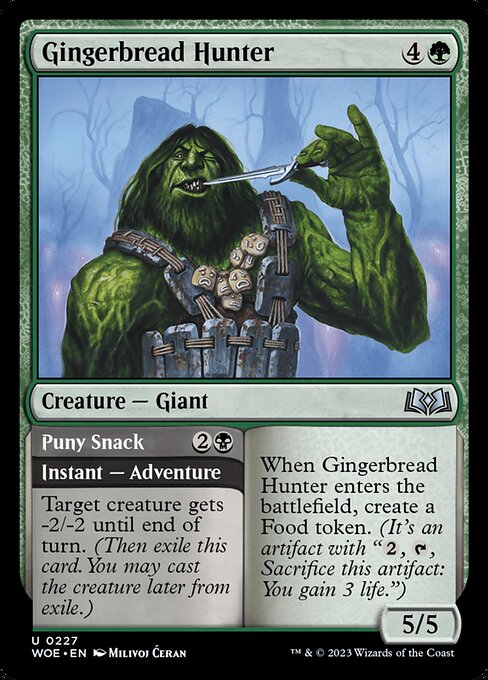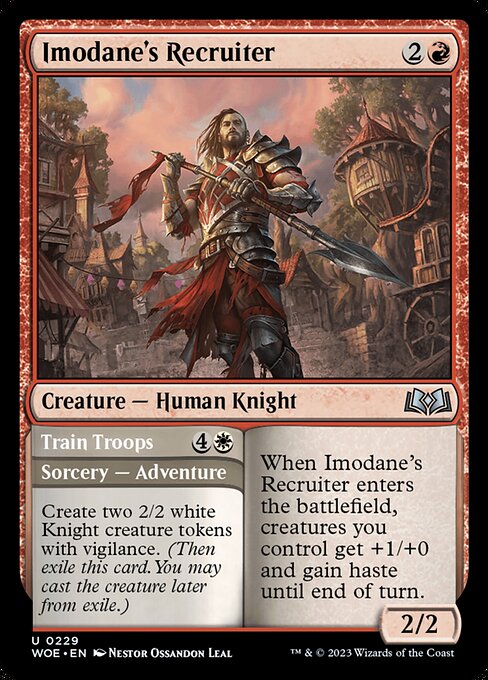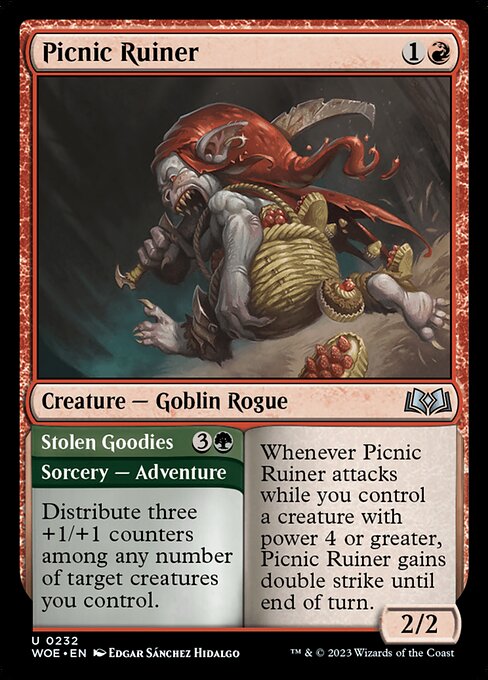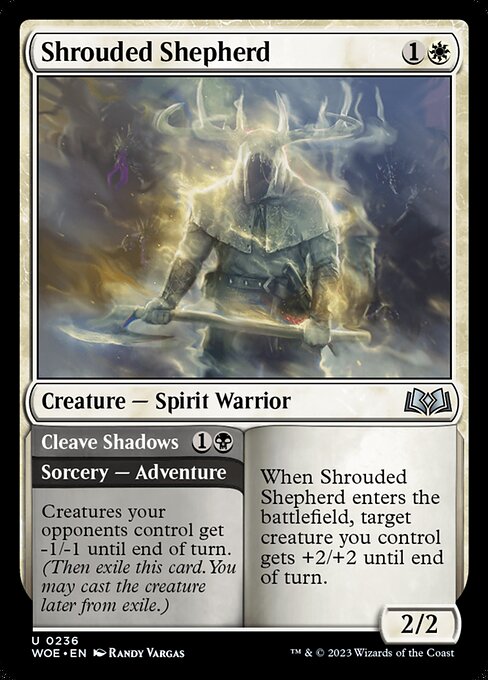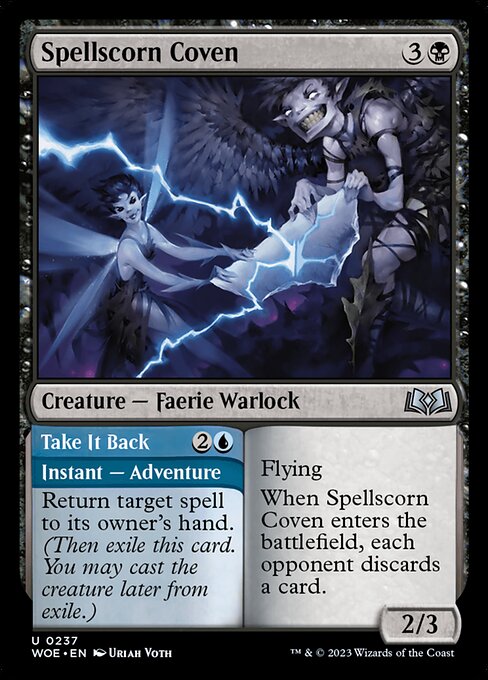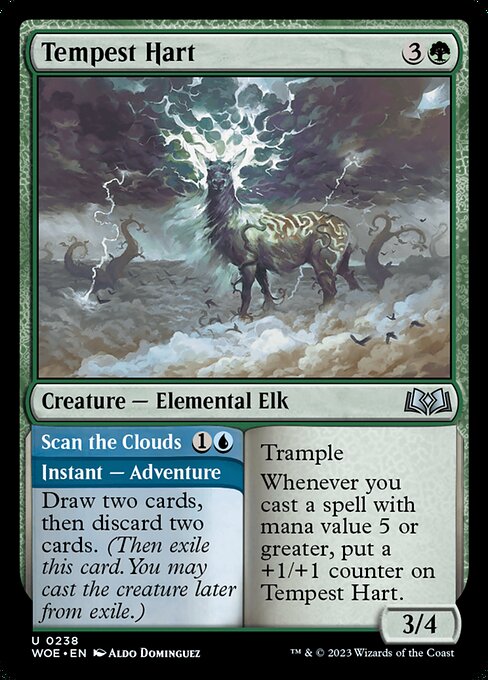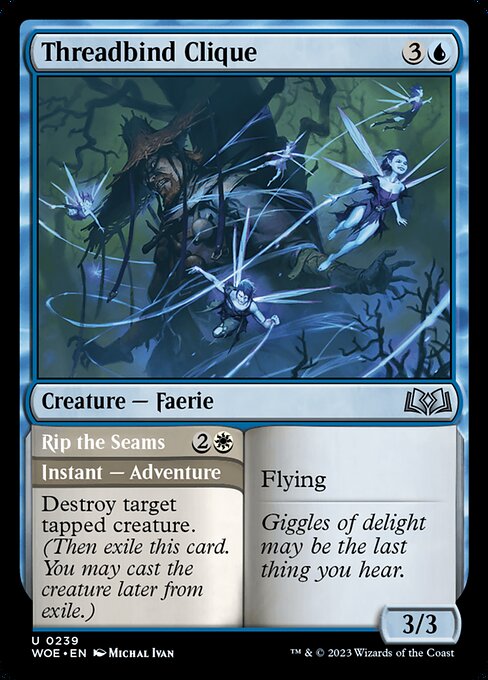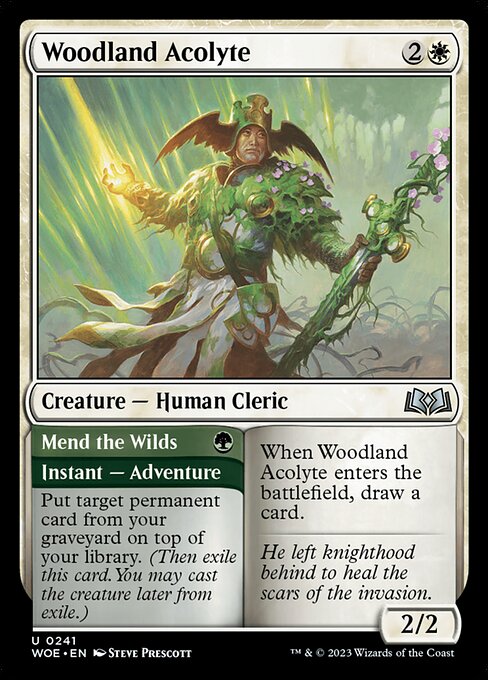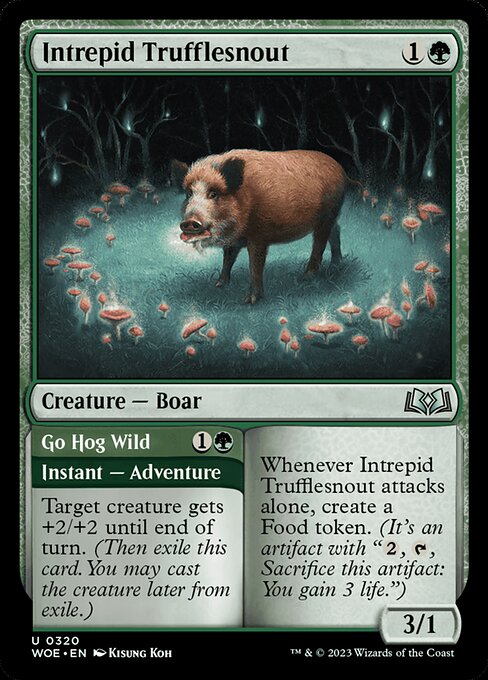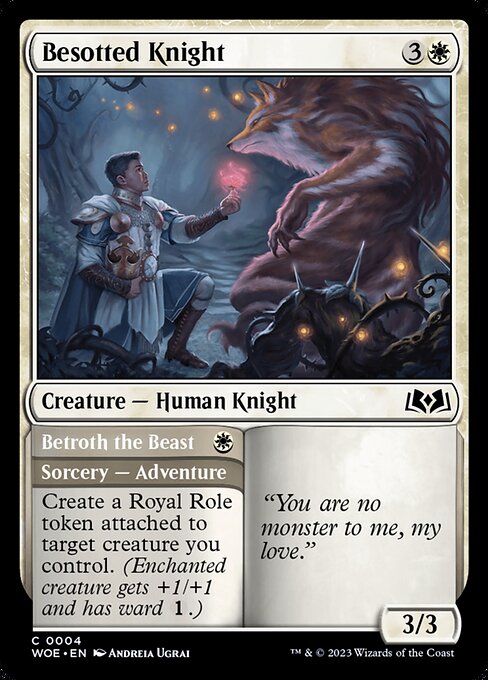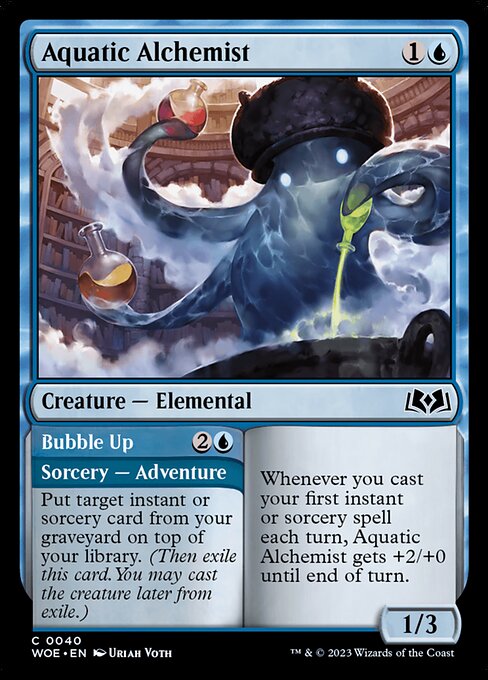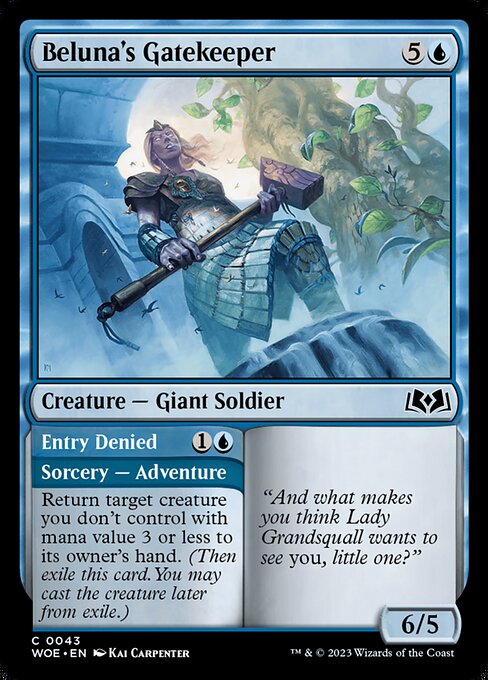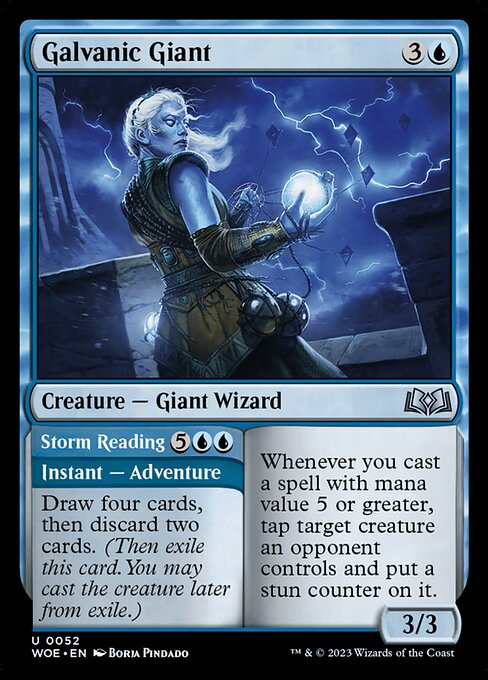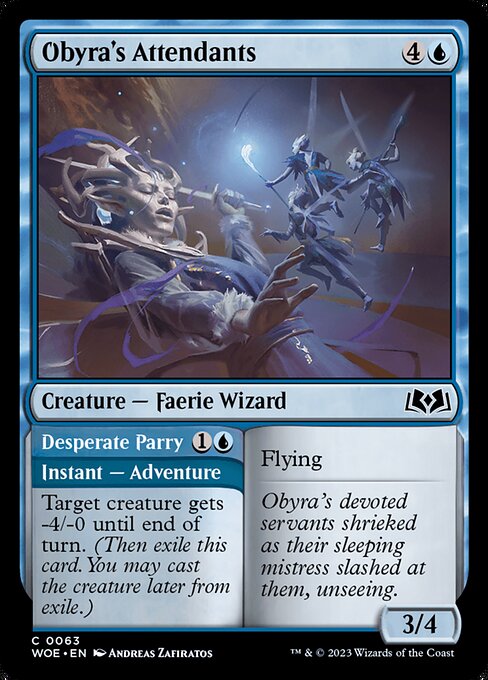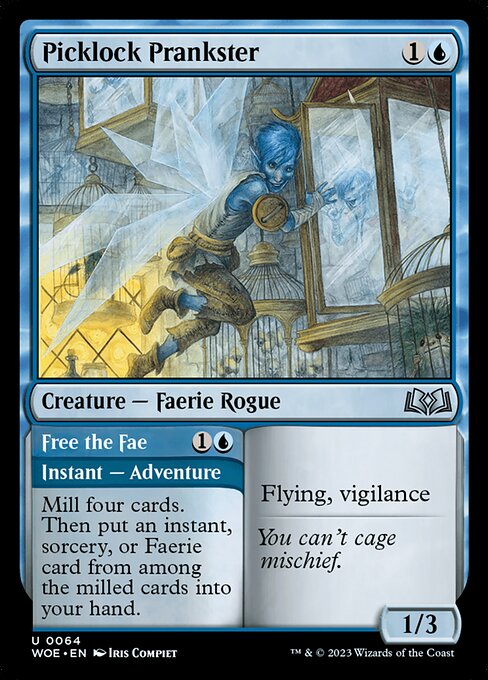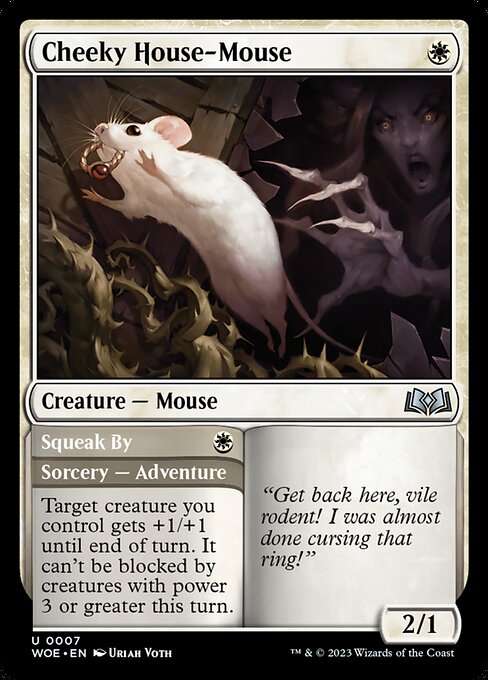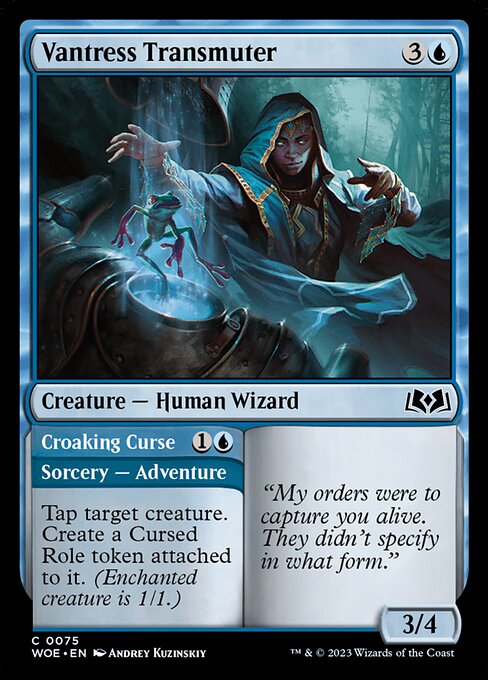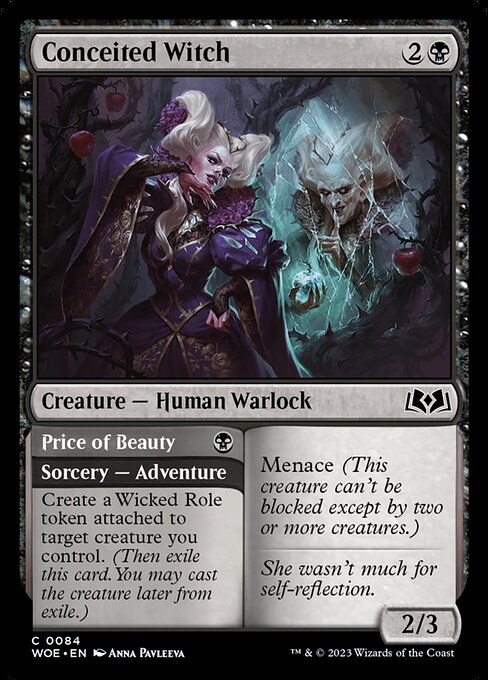standard
future
historic
gladiator
pioneer
explorer
modern
legacy
pauper
vintage
penny
commander
brawl
alchemy
paupercommander
duel
oldschool
premodern
Rulings
An effect may refer to a card, spell, or permanent that “has an Adventure.” This refers to a card, spell, or permanent that has an adventurer card’s set of alternative characteristics, even if they’re not being used and even if that card was never cast as an Adventure.
Fell Horseman will be put on the bottom of its owner's library only if it's still in the graveyard when its ability resolves. If it leaves the graveyard before that point, it will stay in whatever zone it's in, even if it's returned to the graveyard before the ability resolves.
If you cast an adventurer card as an Adventure, use only its alternative characteristics to determine whether it’s legal to cast that spell. For example, if you control Johann, Apprentice Sorcerer (“Once each turn, you may cast an instant or sorcery spell from the top of your library.”) and Questing Druid is on top of your library, you can cast Seek the Beast, but not Questing Druid.
If a spell is cast as an Adventure, its controller exiles it instead of putting it into its owner’s graveyard as it resolves. For as long as it remains exiled, that player may cast it as a permanent spell. If an Adventure spell leaves the stack in any way other than resolving (most likely by being countered or by failing to resolve because its targets have all become illegal), that card won’t be exiled and the spell’s controller won’t be able to cast it as a permanent later.
If an effect refers to a card, spell, or permanent that has an Adventure, it won’t find an instant or sorcery spell on the stack that’s been cast as an Adventure.
If an effect instructs you to choose a card name, you may choose the alternative Adventure name. Consider only the alternative characteristics to determine whether that is an appropriate name to choose.
If an adventurer card ends up in exile for any other reason than by exiling itself while resolving, it won’t give you permission to cast it as a permanent spell.
An adventurer card is a permanent card in every zone except the stack, as well as while on the stack if not cast as an Adventure. Ignore its alternative characteristics in those cases. For example, while it’s in your graveyard, Questing Druid is a green creature card whose mana value is 2. It can’t be the target of Tenacious Tomeseeker’s triggered ability (“return target instant or sorcery card from your graveyard to your hand”).
If an effect copies an Adventure spell, that copy is exiled as it resolves. It ceases to exist as a state-based action; it’s not possible to cast the copy as a permanent.
Casting a card as an Adventure isn’t casting it for an alternative cost. Effects that allow you to cast a spell for an alternative cost or without paying its mana cost may allow you to apply those to the Adventure.
You must still follow any timing restrictions and permissions for the permanent spell you cast from exile. Normally, you’ll be able to cast it only during your main phase while the stack is empty.
When casting a spell as an Adventure, use the alternative characteristics and ignore all of the card’s normal characteristics. The spell’s color, mana cost, mana value, and so on are determined by only those alternative characteristics. If the spell leaves the stack, it immediately resumes using its normal characteristics.
If an object becomes a copy of an object that has an Adventure, the copy also has an Adventure. If it changes zones, it will either cease to exist (if it’s a token) or cease to be a copy (if it’s a nontoken permanent), and so you won’t be able to cast it as an Adventure.
Fell Horseman will be put on the bottom of its owner's library only if it's still in the graveyard when its ability resolves. If it leaves the graveyard before that point, it will stay in whatever zone it's in, even if it's returned to the graveyard before the ability resolves.
If you cast an adventurer card as an Adventure, use only its alternative characteristics to determine whether it’s legal to cast that spell. For example, if you control Johann, Apprentice Sorcerer (“Once each turn, you may cast an instant or sorcery spell from the top of your library.”) and Questing Druid is on top of your library, you can cast Seek the Beast, but not Questing Druid.
If a spell is cast as an Adventure, its controller exiles it instead of putting it into its owner’s graveyard as it resolves. For as long as it remains exiled, that player may cast it as a permanent spell. If an Adventure spell leaves the stack in any way other than resolving (most likely by being countered or by failing to resolve because its targets have all become illegal), that card won’t be exiled and the spell’s controller won’t be able to cast it as a permanent later.
If an effect refers to a card, spell, or permanent that has an Adventure, it won’t find an instant or sorcery spell on the stack that’s been cast as an Adventure.
If an effect instructs you to choose a card name, you may choose the alternative Adventure name. Consider only the alternative characteristics to determine whether that is an appropriate name to choose.
If an adventurer card ends up in exile for any other reason than by exiling itself while resolving, it won’t give you permission to cast it as a permanent spell.
An adventurer card is a permanent card in every zone except the stack, as well as while on the stack if not cast as an Adventure. Ignore its alternative characteristics in those cases. For example, while it’s in your graveyard, Questing Druid is a green creature card whose mana value is 2. It can’t be the target of Tenacious Tomeseeker’s triggered ability (“return target instant or sorcery card from your graveyard to your hand”).
If an effect copies an Adventure spell, that copy is exiled as it resolves. It ceases to exist as a state-based action; it’s not possible to cast the copy as a permanent.
Casting a card as an Adventure isn’t casting it for an alternative cost. Effects that allow you to cast a spell for an alternative cost or without paying its mana cost may allow you to apply those to the Adventure.
You must still follow any timing restrictions and permissions for the permanent spell you cast from exile. Normally, you’ll be able to cast it only during your main phase while the stack is empty.
When casting a spell as an Adventure, use the alternative characteristics and ignore all of the card’s normal characteristics. The spell’s color, mana cost, mana value, and so on are determined by only those alternative characteristics. If the spell leaves the stack, it immediately resumes using its normal characteristics.
If an object becomes a copy of an object that has an Adventure, the copy also has an Adventure. If it changes zones, it will either cease to exist (if it’s a token) or cease to be a copy (if it’s a nontoken permanent), and so you won’t be able to cast it as an Adventure.
Rulings
An effect may refer to a card, spell, or permanent that “has an Adventure.” This refers to a card, spell, or permanent that has an adventurer card’s set of alternative characteristics, even if they’re not being used and even if that card was never cast as an Adventure.
Fell Horseman will be put on the bottom of its owner's library only if it's still in the graveyard when its ability resolves. If it leaves the graveyard before that point, it will stay in whatever zone it's in, even if it's returned to the graveyard before the ability resolves.
If you cast an adventurer card as an Adventure, use only its alternative characteristics to determine whether it’s legal to cast that spell. For example, if you control Johann, Apprentice Sorcerer (“Once each turn, you may cast an instant or sorcery spell from the top of your library.”) and Questing Druid is on top of your library, you can cast Seek the Beast, but not Questing Druid.
If a spell is cast as an Adventure, its controller exiles it instead of putting it into its owner’s graveyard as it resolves. For as long as it remains exiled, that player may cast it as a permanent spell. If an Adventure spell leaves the stack in any way other than resolving (most likely by being countered or by failing to resolve because its targets have all become illegal), that card won’t be exiled and the spell’s controller won’t be able to cast it as a permanent later.
If an effect refers to a card, spell, or permanent that has an Adventure, it won’t find an instant or sorcery spell on the stack that’s been cast as an Adventure.
If an effect instructs you to choose a card name, you may choose the alternative Adventure name. Consider only the alternative characteristics to determine whether that is an appropriate name to choose.
If an adventurer card ends up in exile for any other reason than by exiling itself while resolving, it won’t give you permission to cast it as a permanent spell.
An adventurer card is a permanent card in every zone except the stack, as well as while on the stack if not cast as an Adventure. Ignore its alternative characteristics in those cases. For example, while it’s in your graveyard, Questing Druid is a green creature card whose mana value is 2. It can’t be the target of Tenacious Tomeseeker’s triggered ability (“return target instant or sorcery card from your graveyard to your hand”).
If an effect copies an Adventure spell, that copy is exiled as it resolves. It ceases to exist as a state-based action; it’s not possible to cast the copy as a permanent.
Casting a card as an Adventure isn’t casting it for an alternative cost. Effects that allow you to cast a spell for an alternative cost or without paying its mana cost may allow you to apply those to the Adventure.
You must still follow any timing restrictions and permissions for the permanent spell you cast from exile. Normally, you’ll be able to cast it only during your main phase while the stack is empty.
When casting a spell as an Adventure, use the alternative characteristics and ignore all of the card’s normal characteristics. The spell’s color, mana cost, mana value, and so on are determined by only those alternative characteristics. If the spell leaves the stack, it immediately resumes using its normal characteristics.
If an object becomes a copy of an object that has an Adventure, the copy also has an Adventure. If it changes zones, it will either cease to exist (if it’s a token) or cease to be a copy (if it’s a nontoken permanent), and so you won’t be able to cast it as an Adventure.
Fell Horseman will be put on the bottom of its owner's library only if it's still in the graveyard when its ability resolves. If it leaves the graveyard before that point, it will stay in whatever zone it's in, even if it's returned to the graveyard before the ability resolves.
If you cast an adventurer card as an Adventure, use only its alternative characteristics to determine whether it’s legal to cast that spell. For example, if you control Johann, Apprentice Sorcerer (“Once each turn, you may cast an instant or sorcery spell from the top of your library.”) and Questing Druid is on top of your library, you can cast Seek the Beast, but not Questing Druid.
If a spell is cast as an Adventure, its controller exiles it instead of putting it into its owner’s graveyard as it resolves. For as long as it remains exiled, that player may cast it as a permanent spell. If an Adventure spell leaves the stack in any way other than resolving (most likely by being countered or by failing to resolve because its targets have all become illegal), that card won’t be exiled and the spell’s controller won’t be able to cast it as a permanent later.
If an effect refers to a card, spell, or permanent that has an Adventure, it won’t find an instant or sorcery spell on the stack that’s been cast as an Adventure.
If an effect instructs you to choose a card name, you may choose the alternative Adventure name. Consider only the alternative characteristics to determine whether that is an appropriate name to choose.
If an adventurer card ends up in exile for any other reason than by exiling itself while resolving, it won’t give you permission to cast it as a permanent spell.
An adventurer card is a permanent card in every zone except the stack, as well as while on the stack if not cast as an Adventure. Ignore its alternative characteristics in those cases. For example, while it’s in your graveyard, Questing Druid is a green creature card whose mana value is 2. It can’t be the target of Tenacious Tomeseeker’s triggered ability (“return target instant or sorcery card from your graveyard to your hand”).
If an effect copies an Adventure spell, that copy is exiled as it resolves. It ceases to exist as a state-based action; it’s not possible to cast the copy as a permanent.
Casting a card as an Adventure isn’t casting it for an alternative cost. Effects that allow you to cast a spell for an alternative cost or without paying its mana cost may allow you to apply those to the Adventure.
You must still follow any timing restrictions and permissions for the permanent spell you cast from exile. Normally, you’ll be able to cast it only during your main phase while the stack is empty.
When casting a spell as an Adventure, use the alternative characteristics and ignore all of the card’s normal characteristics. The spell’s color, mana cost, mana value, and so on are determined by only those alternative characteristics. If the spell leaves the stack, it immediately resumes using its normal characteristics.
If an object becomes a copy of an object that has an Adventure, the copy also has an Adventure. If it changes zones, it will either cease to exist (if it’s a token) or cease to be a copy (if it’s a nontoken permanent), and so you won’t be able to cast it as an Adventure.
Votre collection ? vos decks ?
Envie de gérer votre collection et/ou créer des decks ?


 0
0
 0.15€
0.15€
